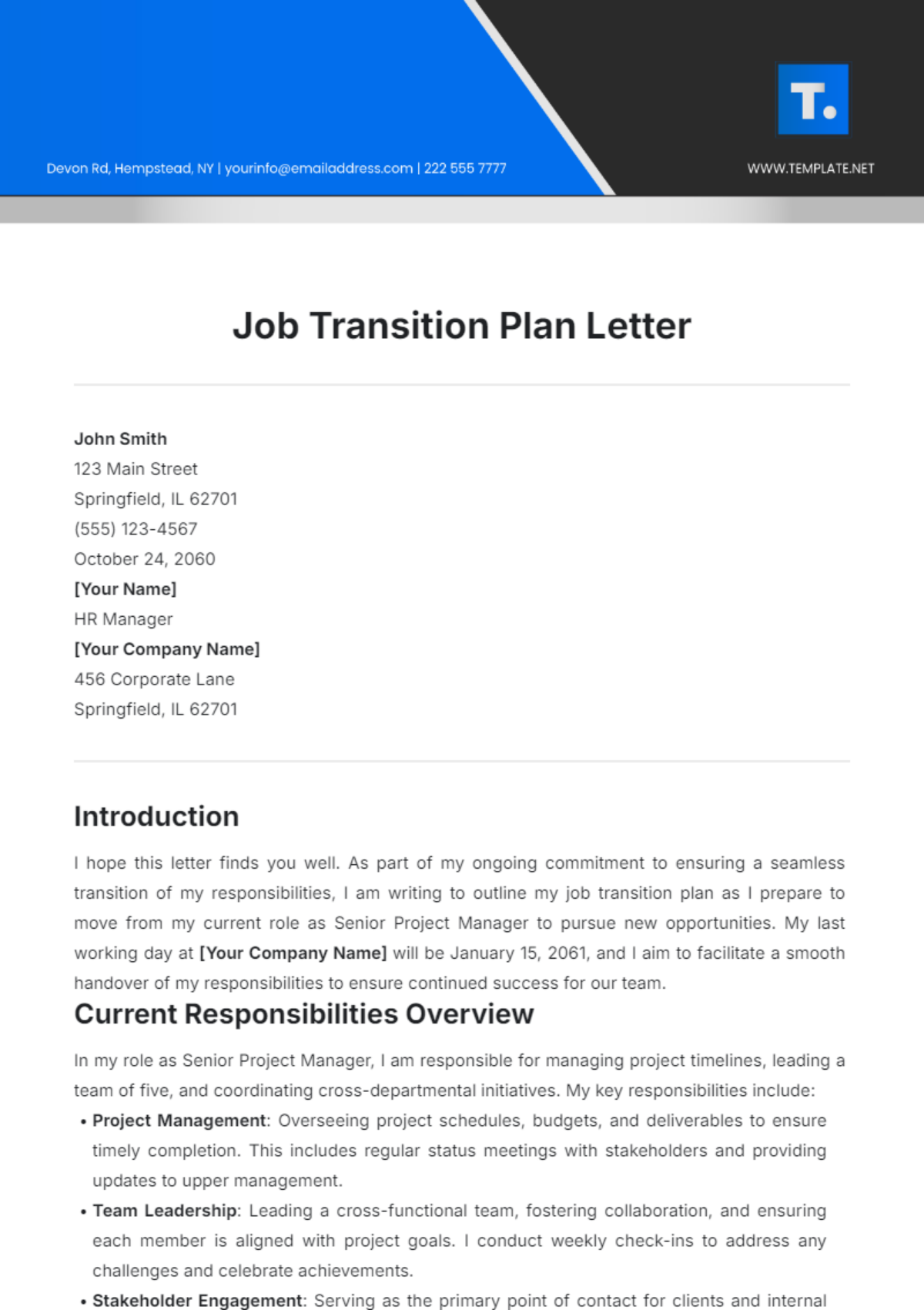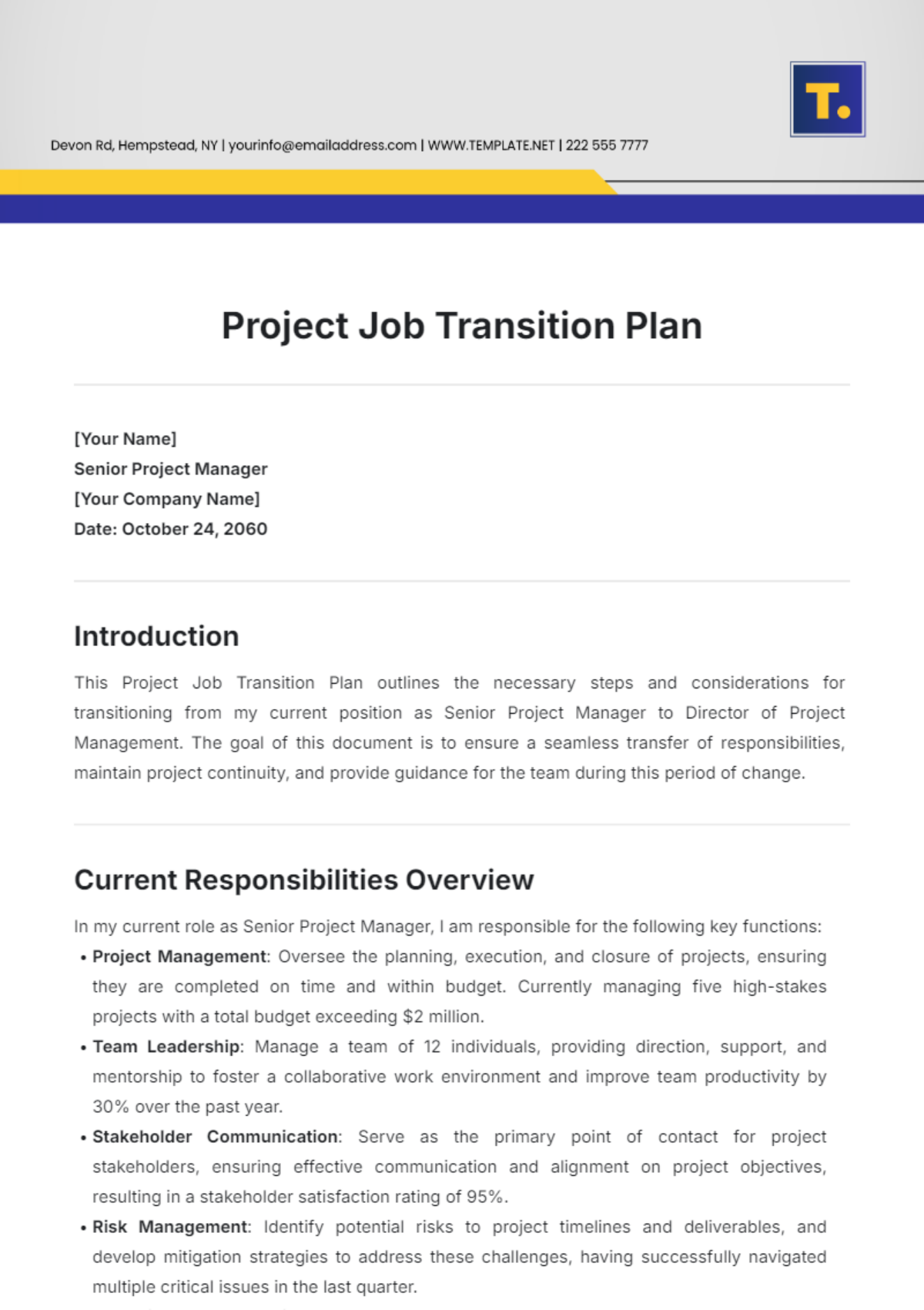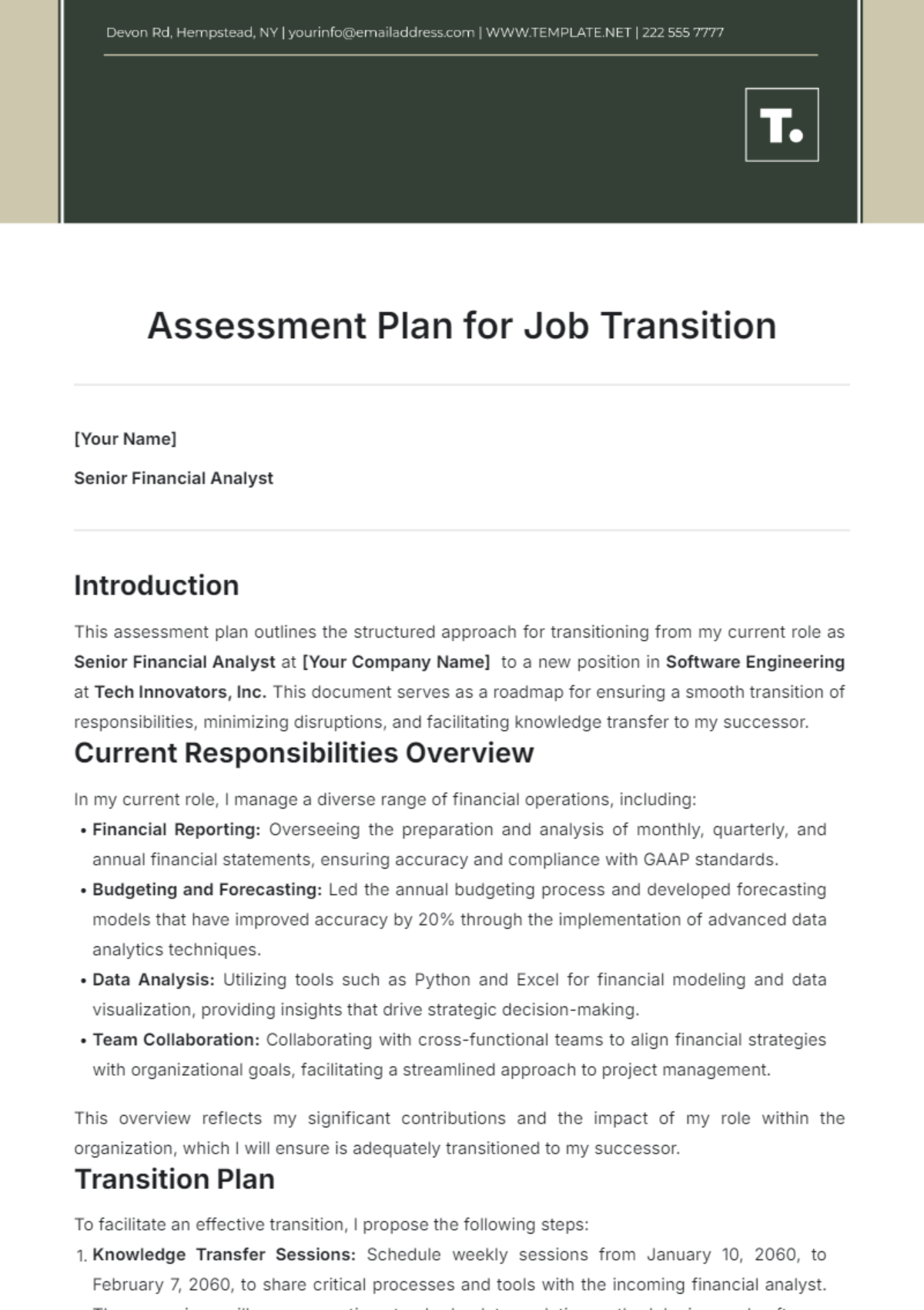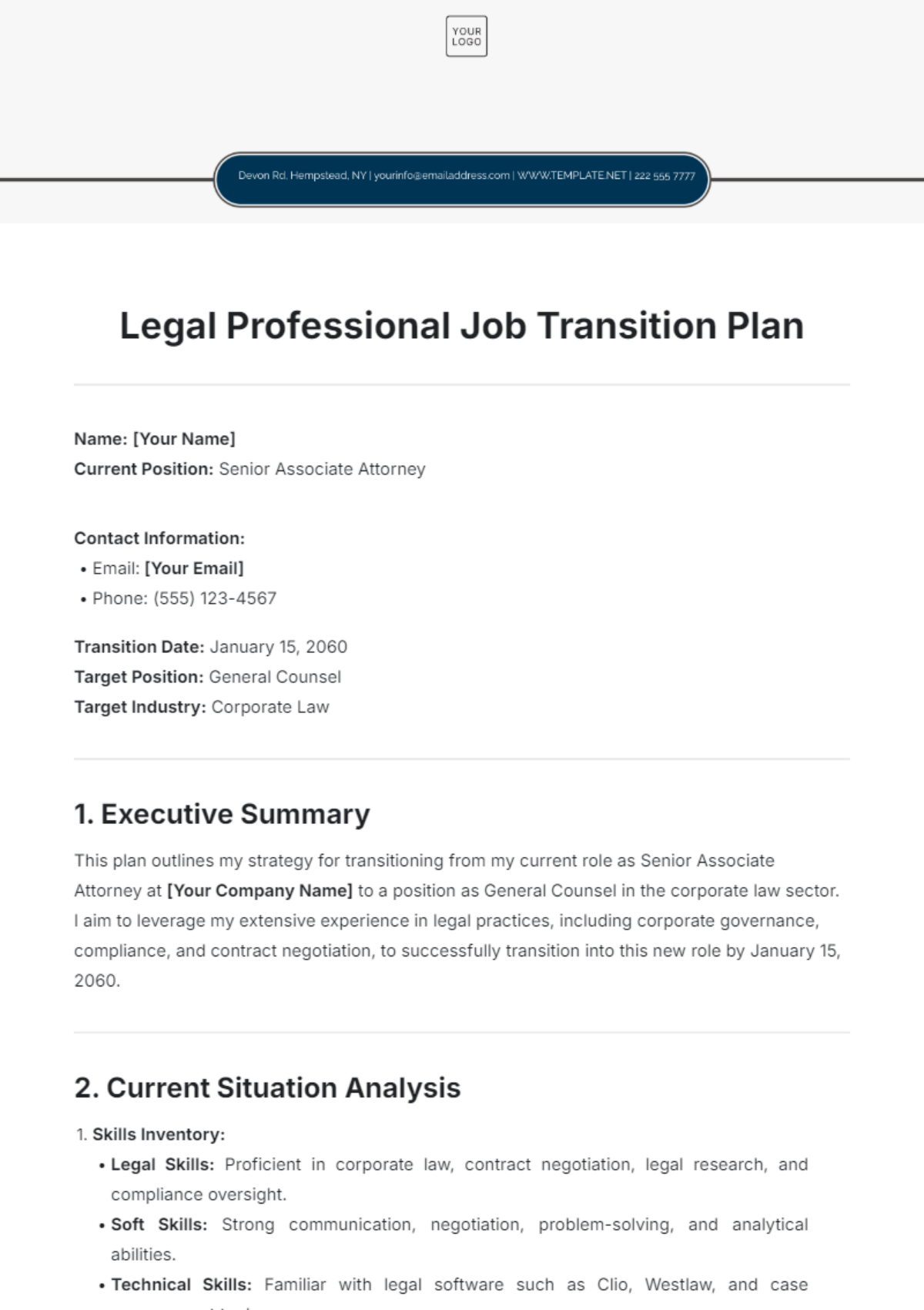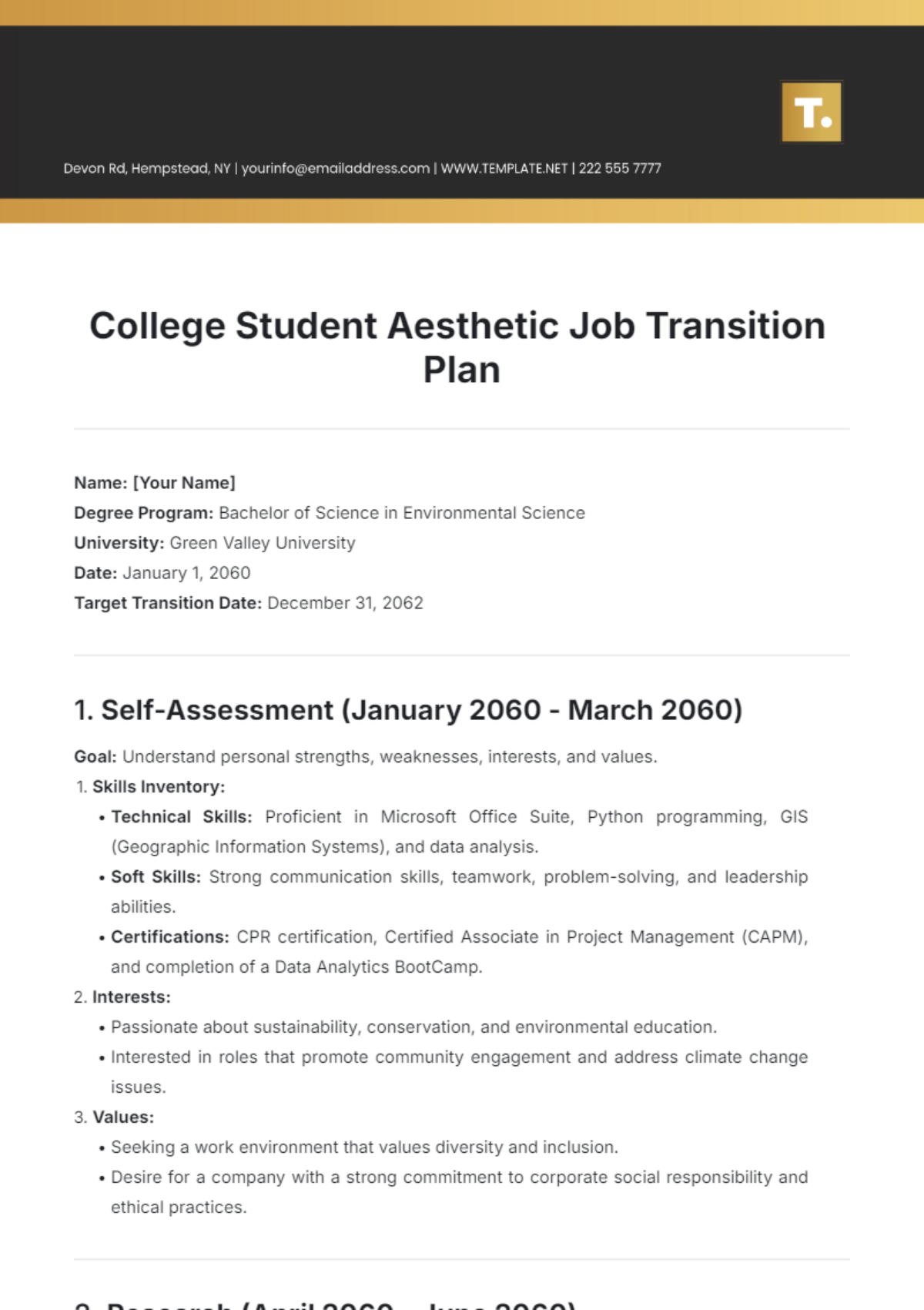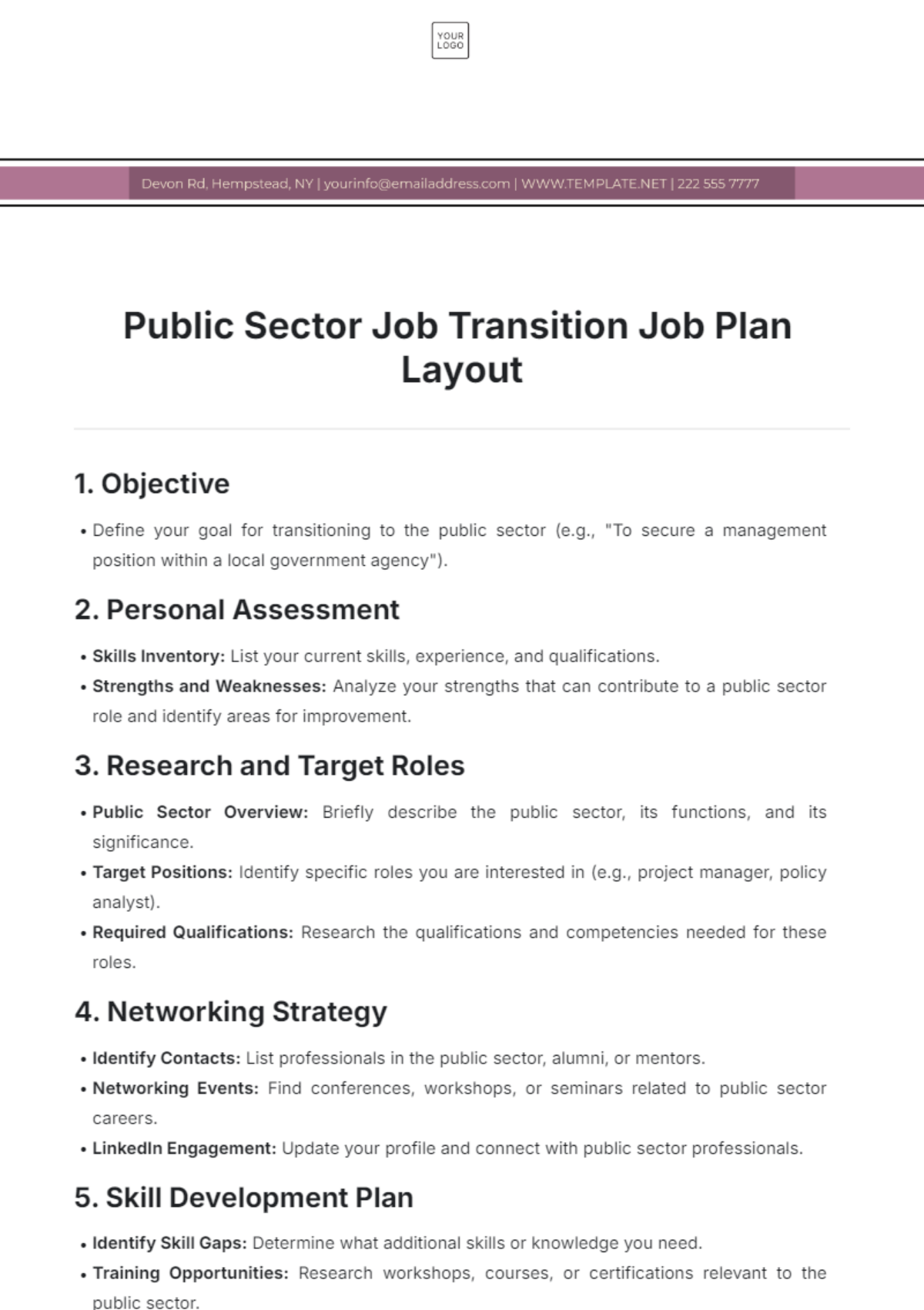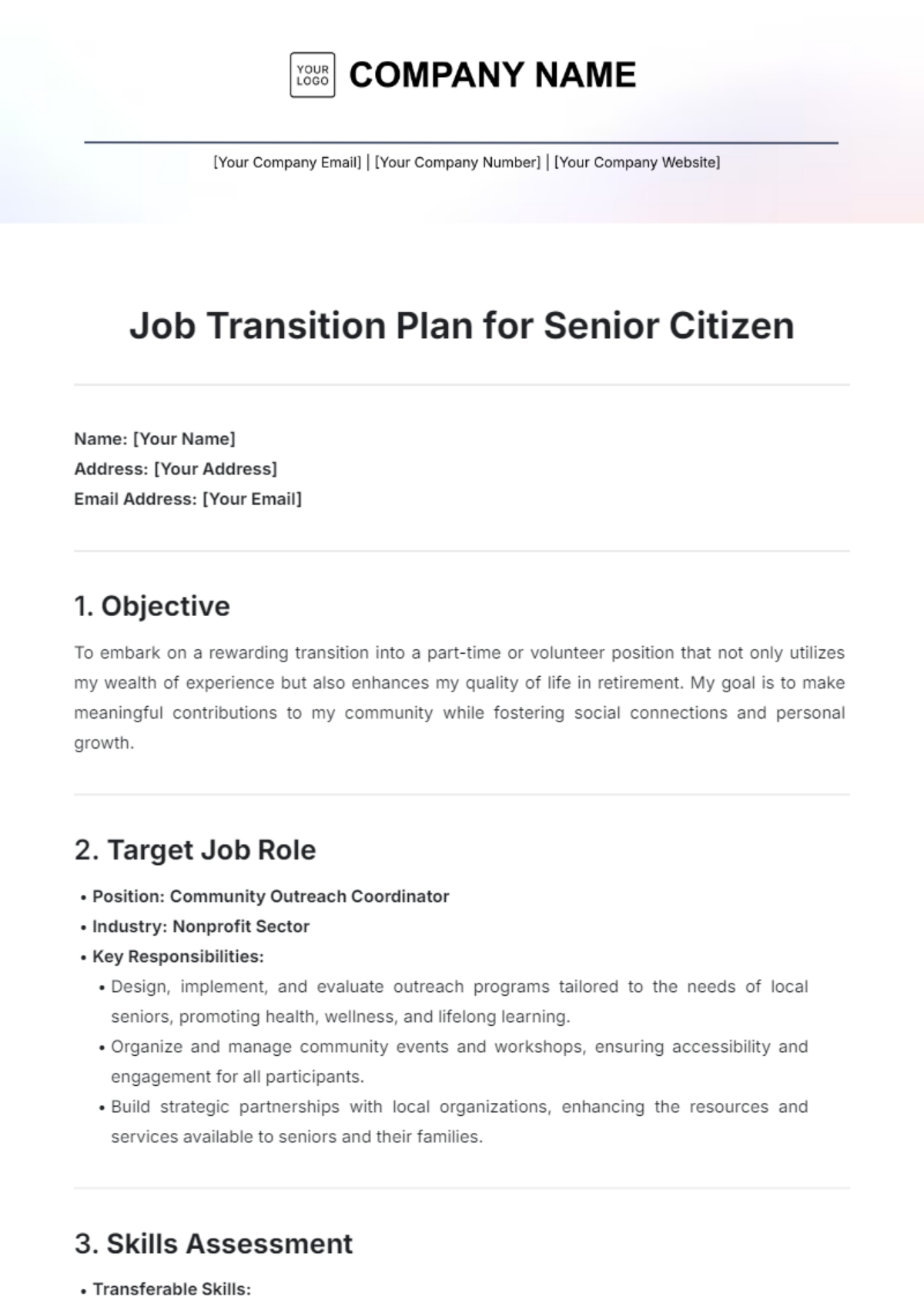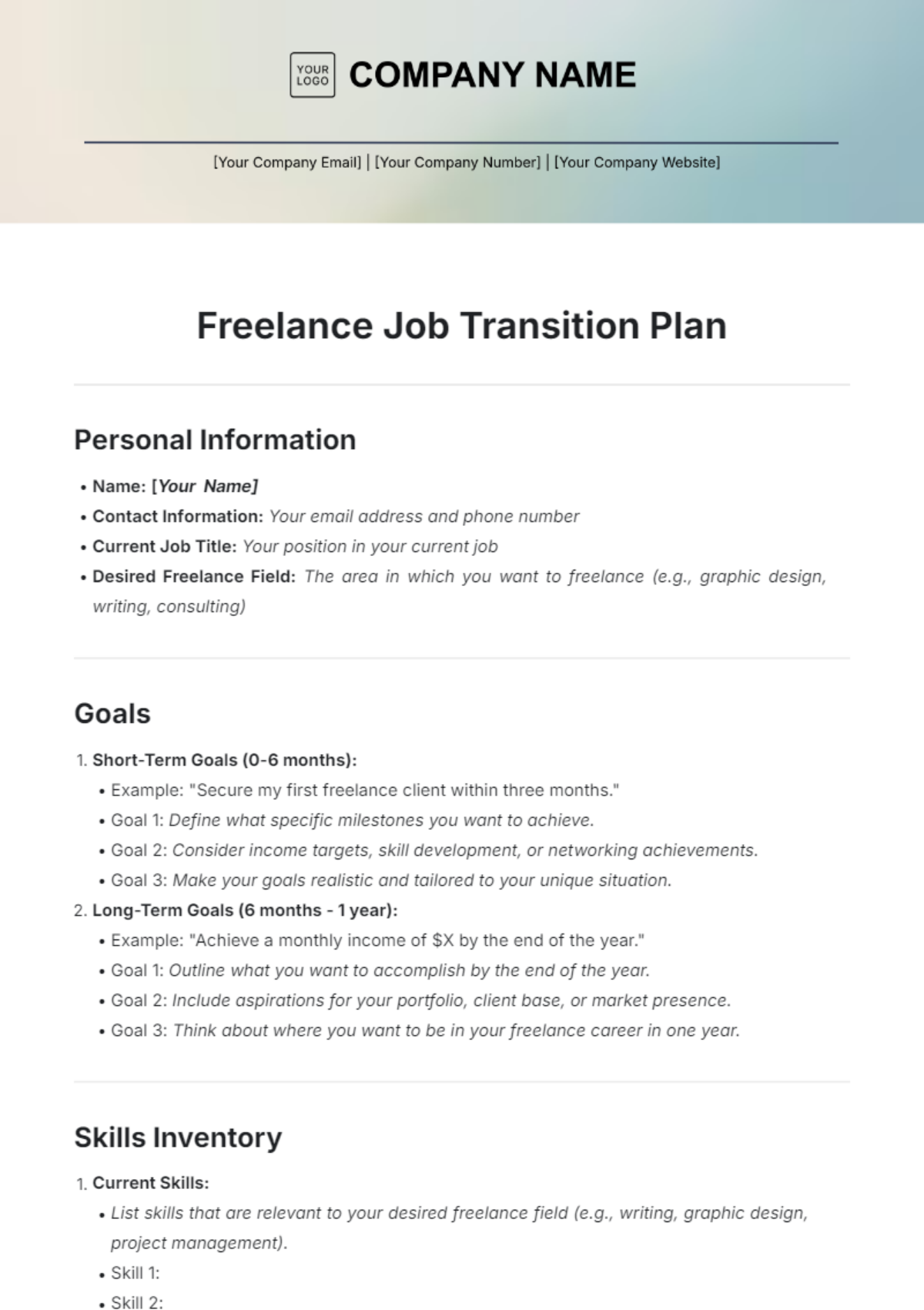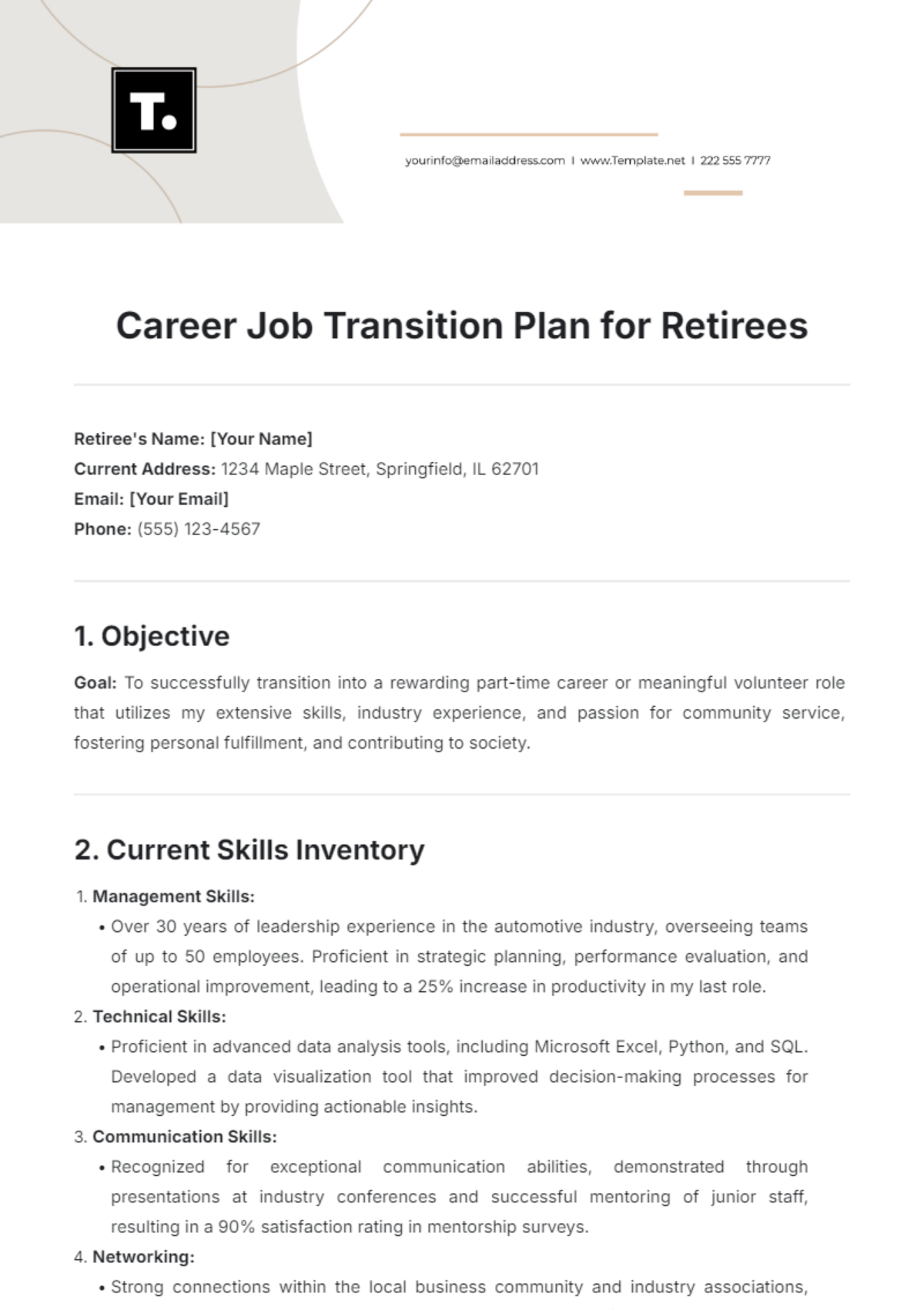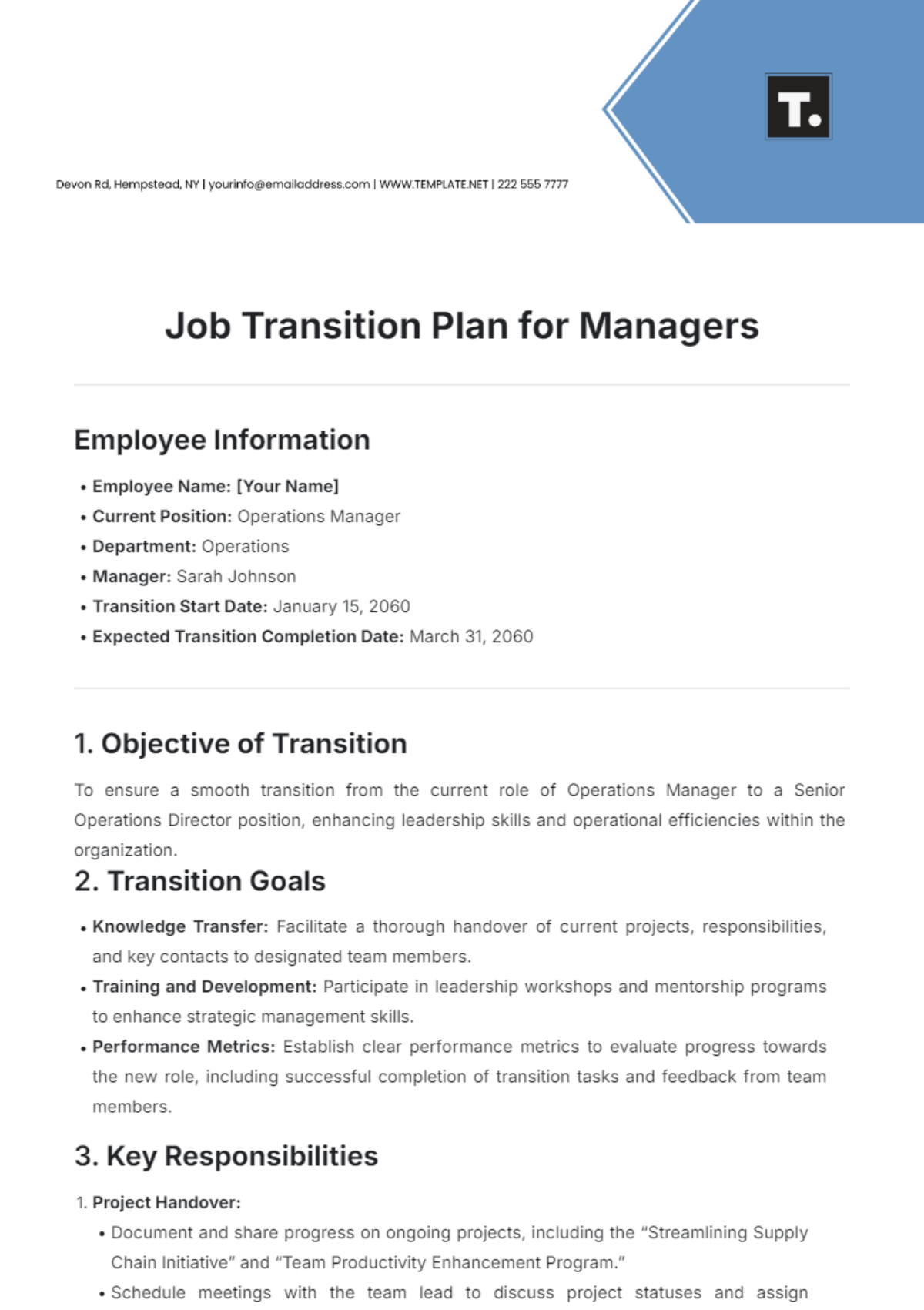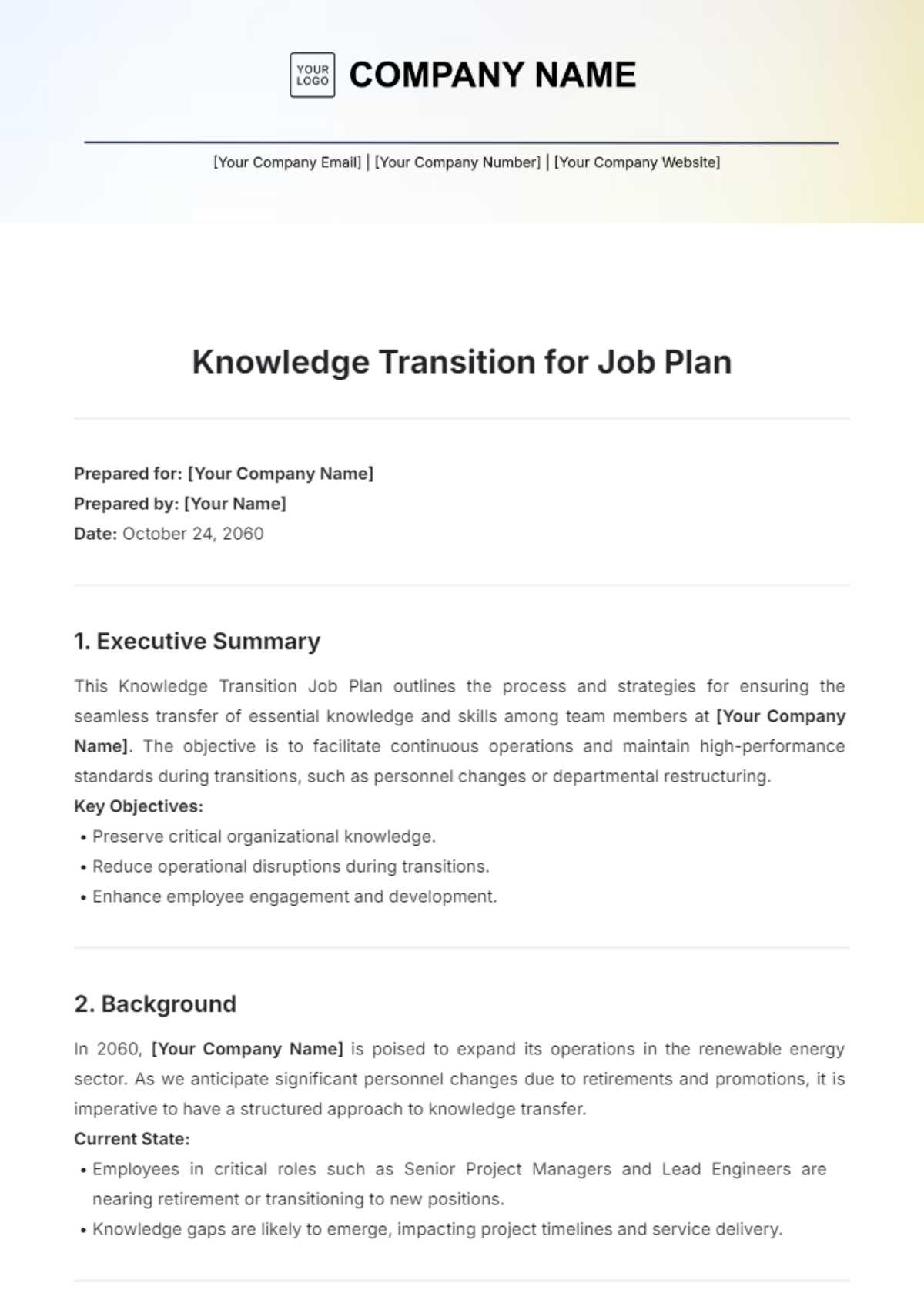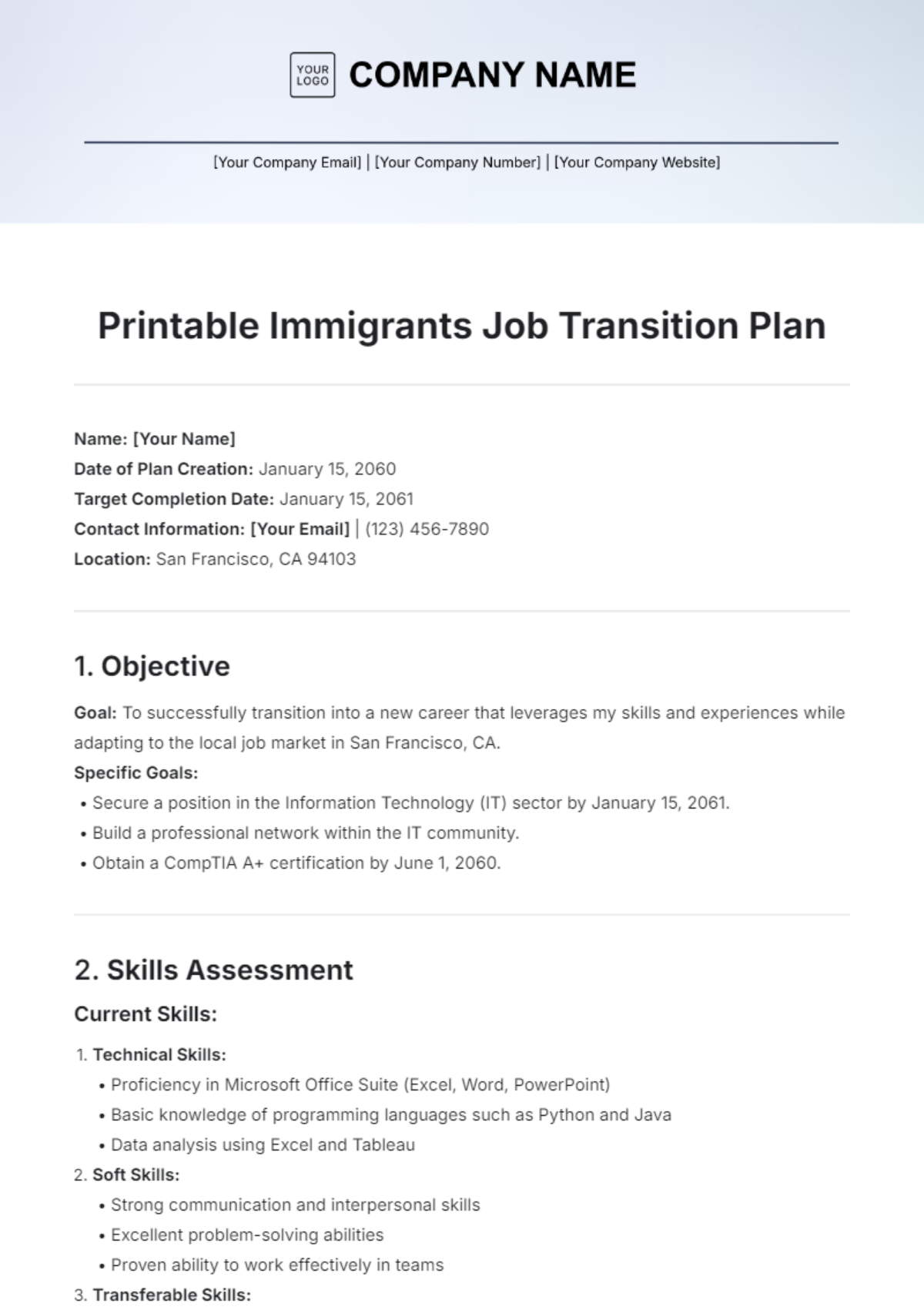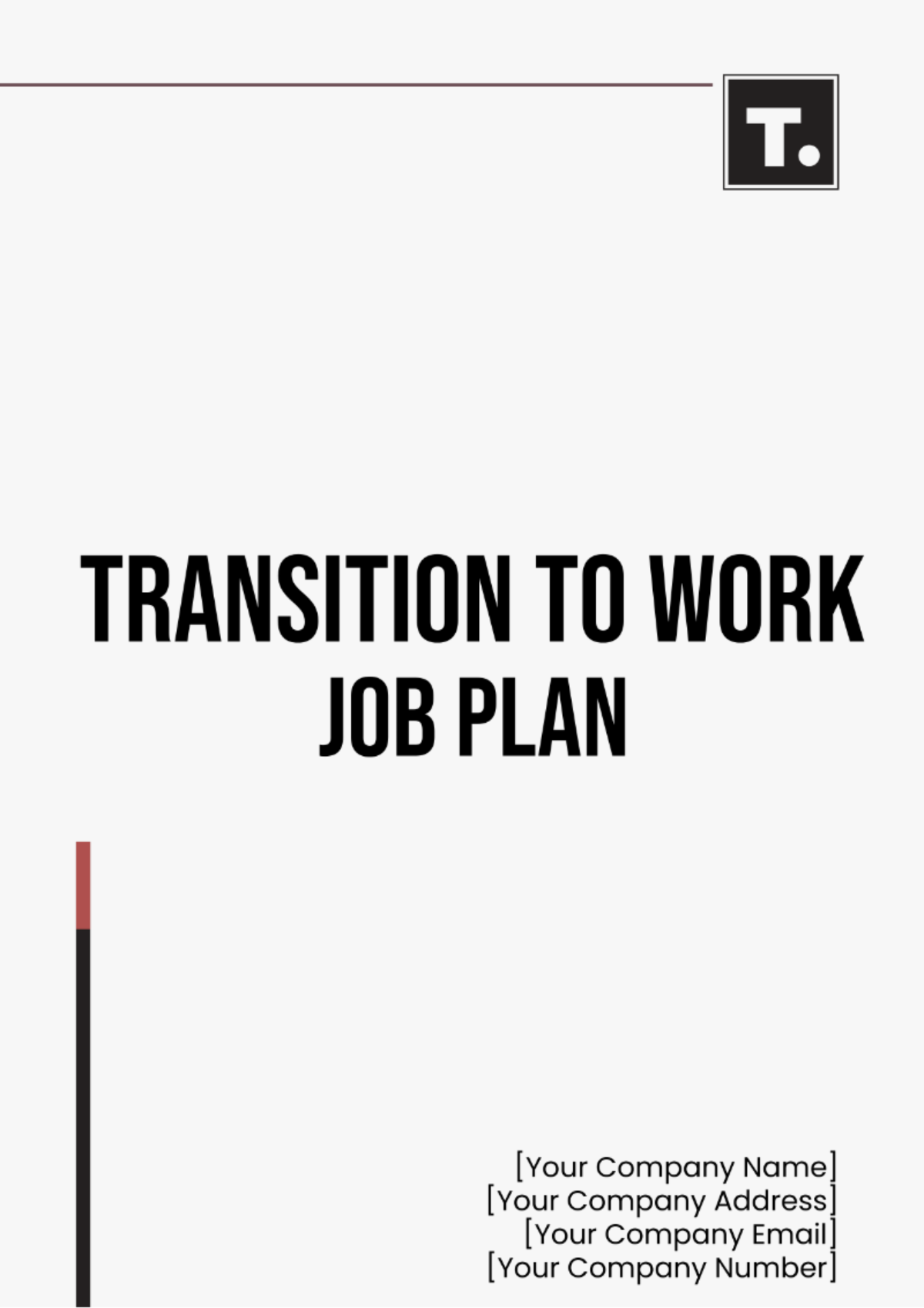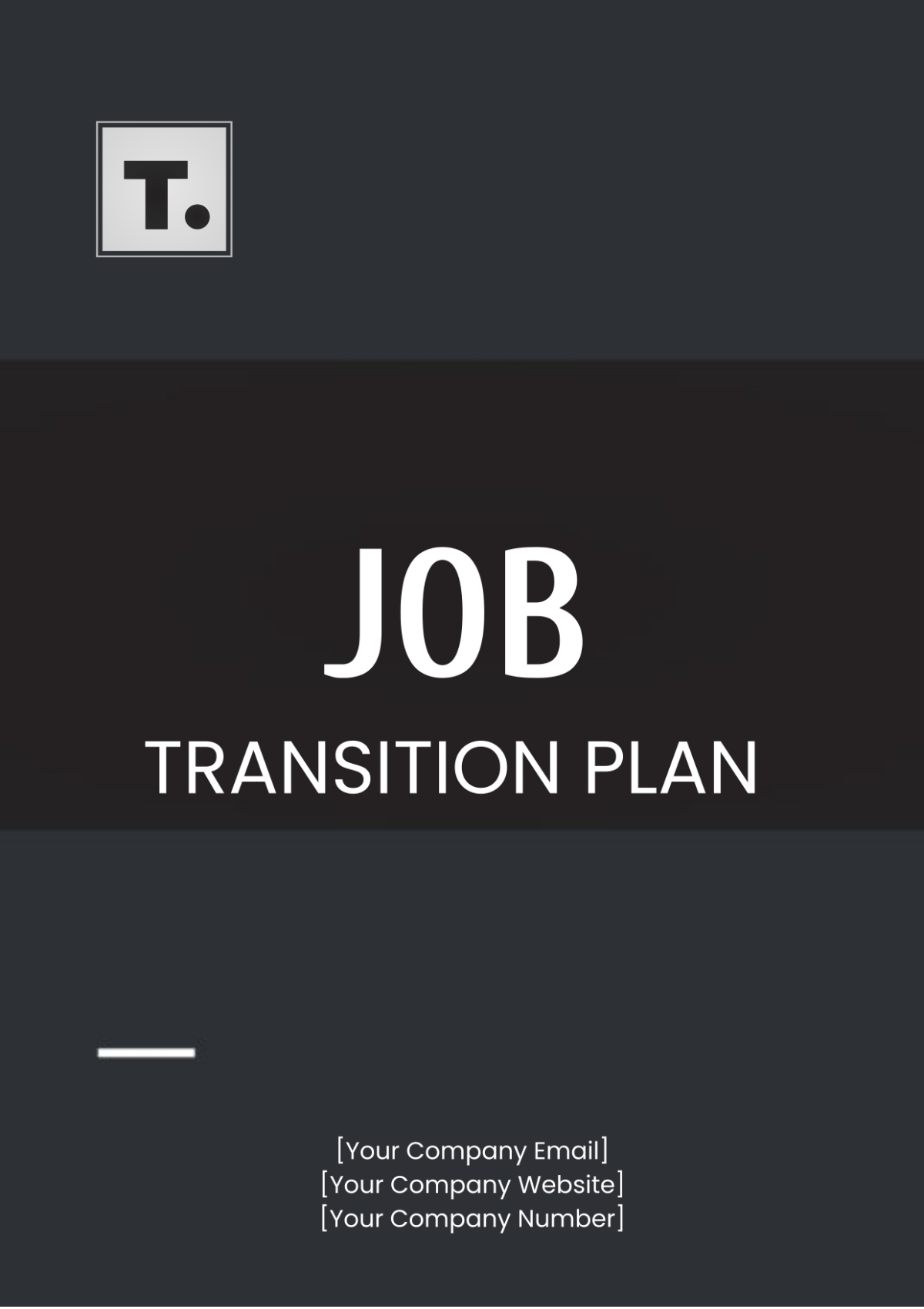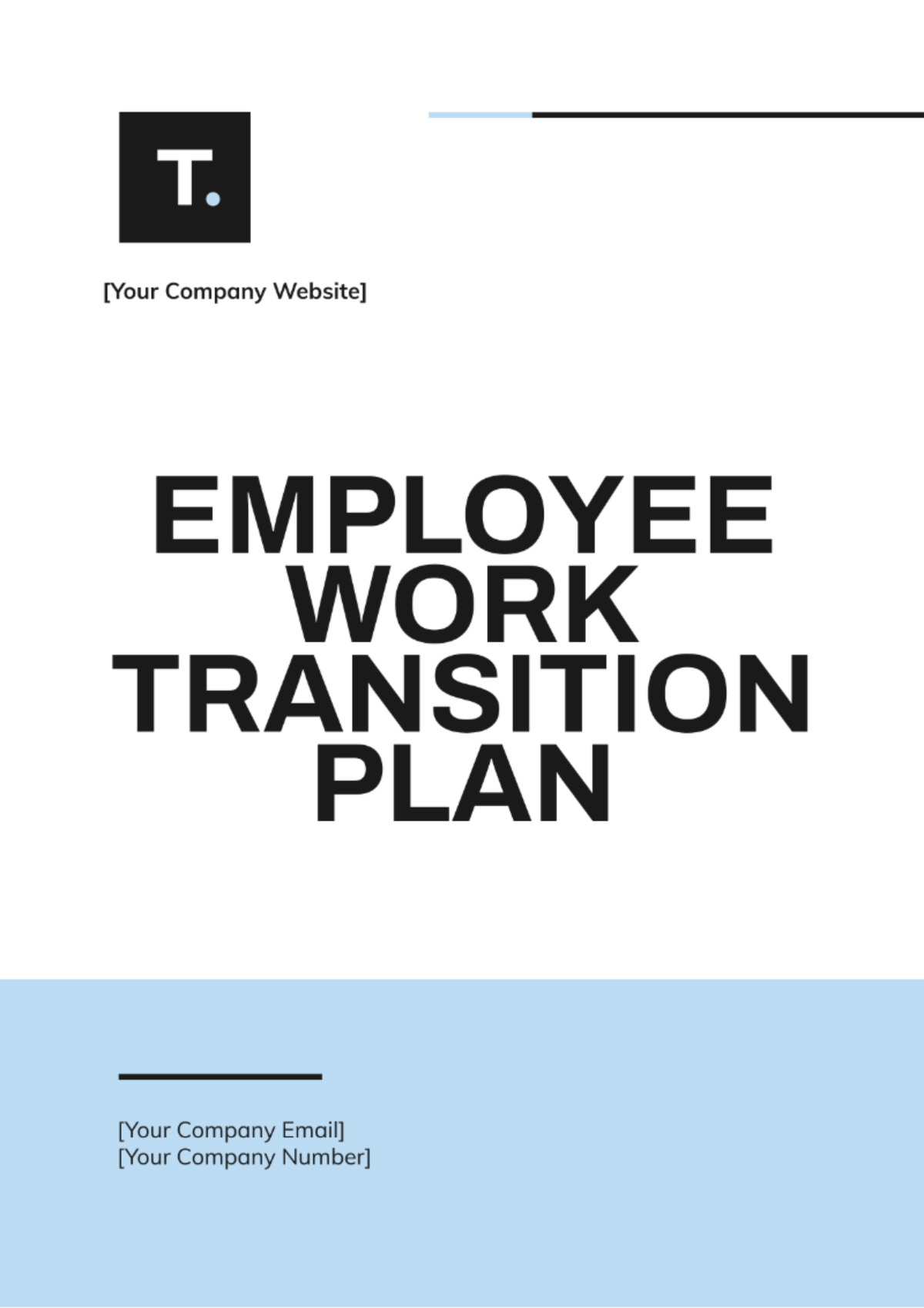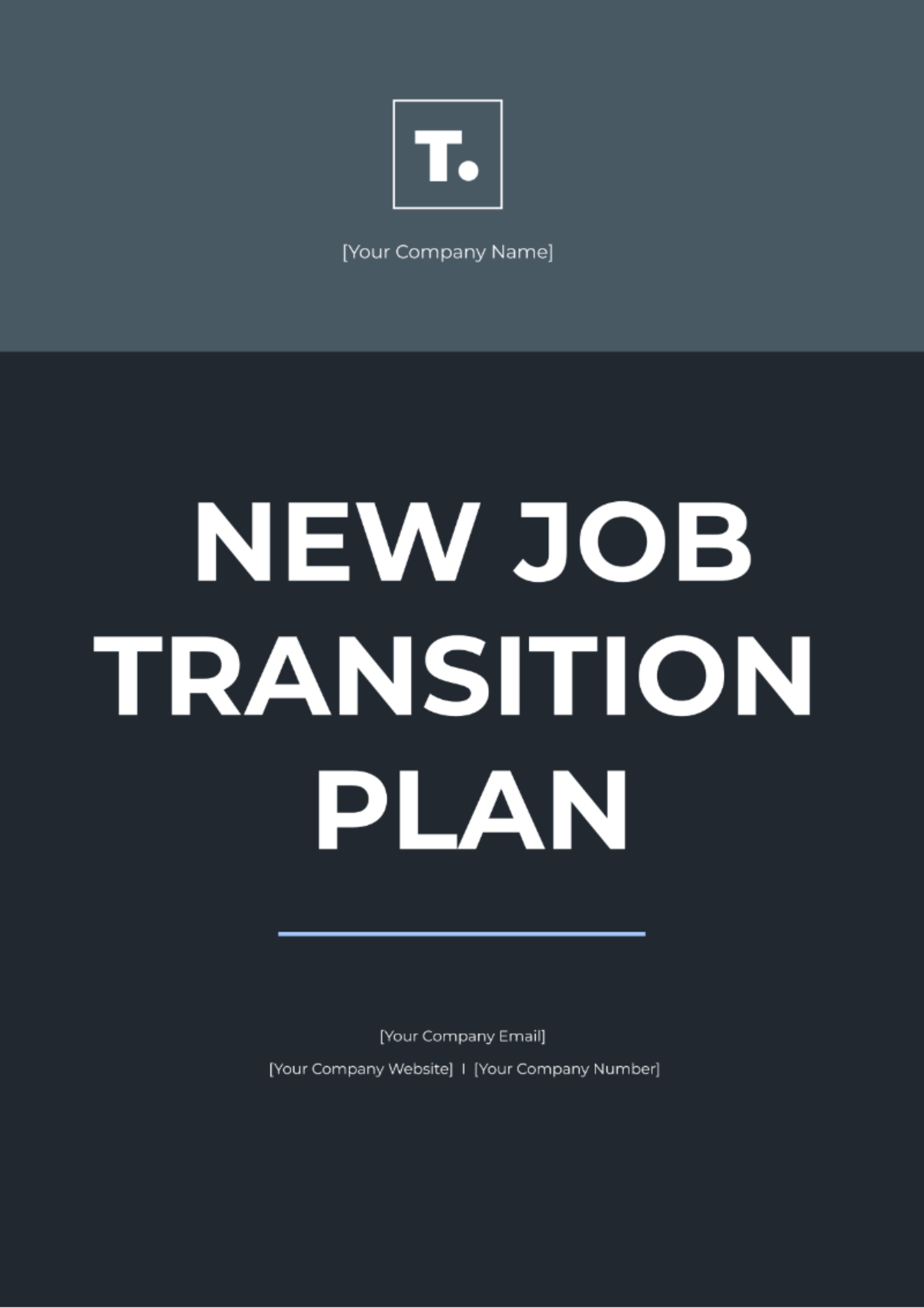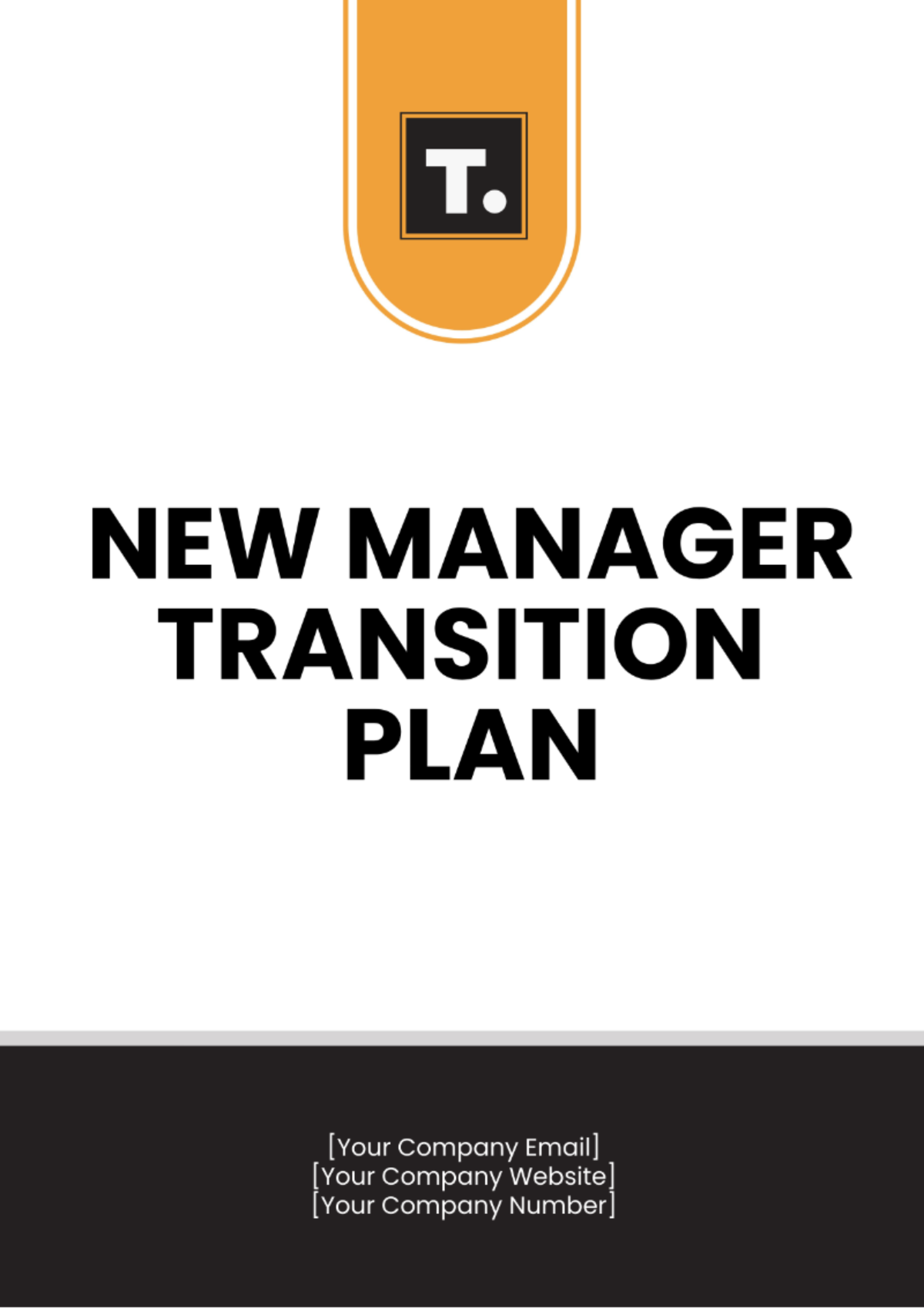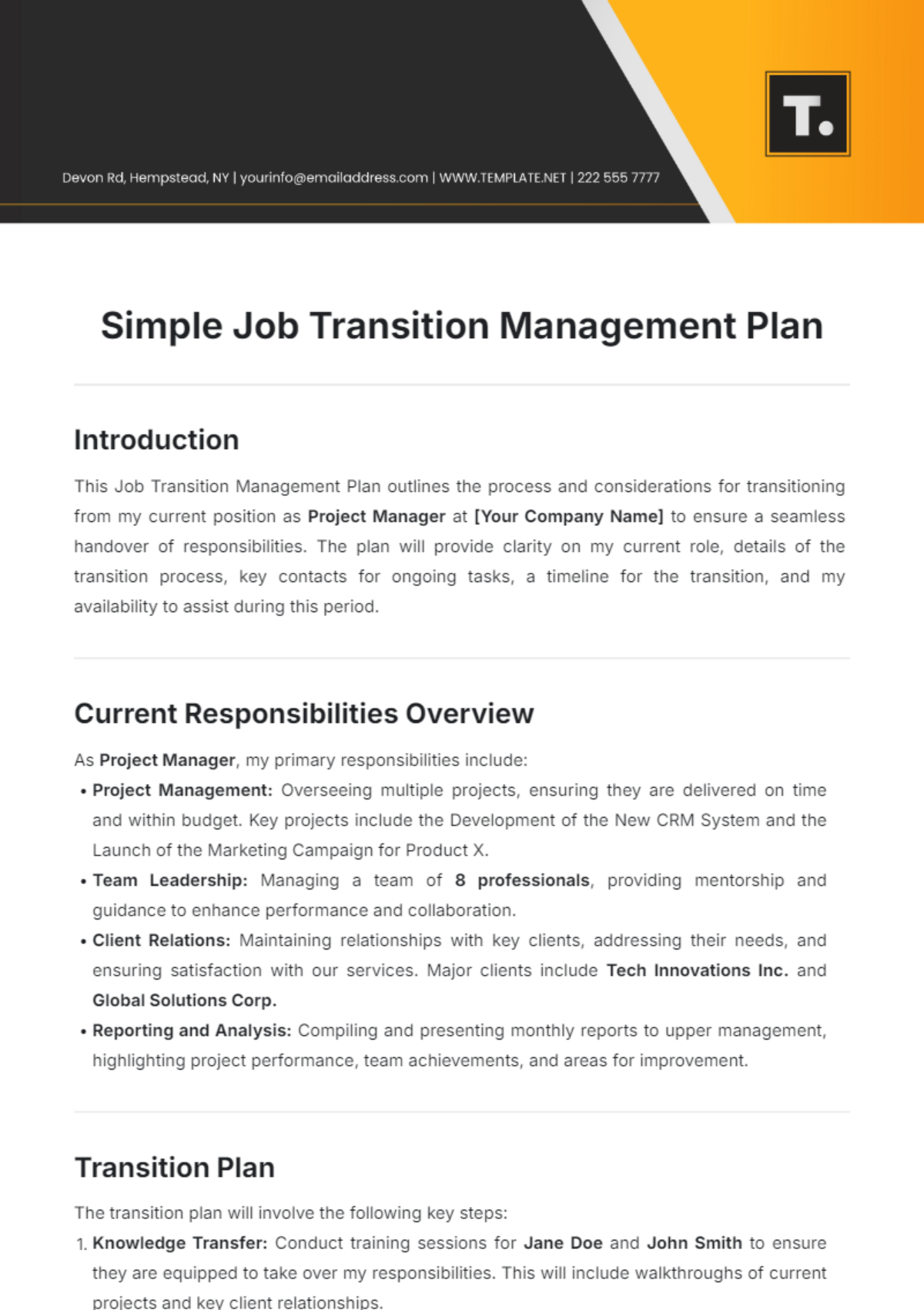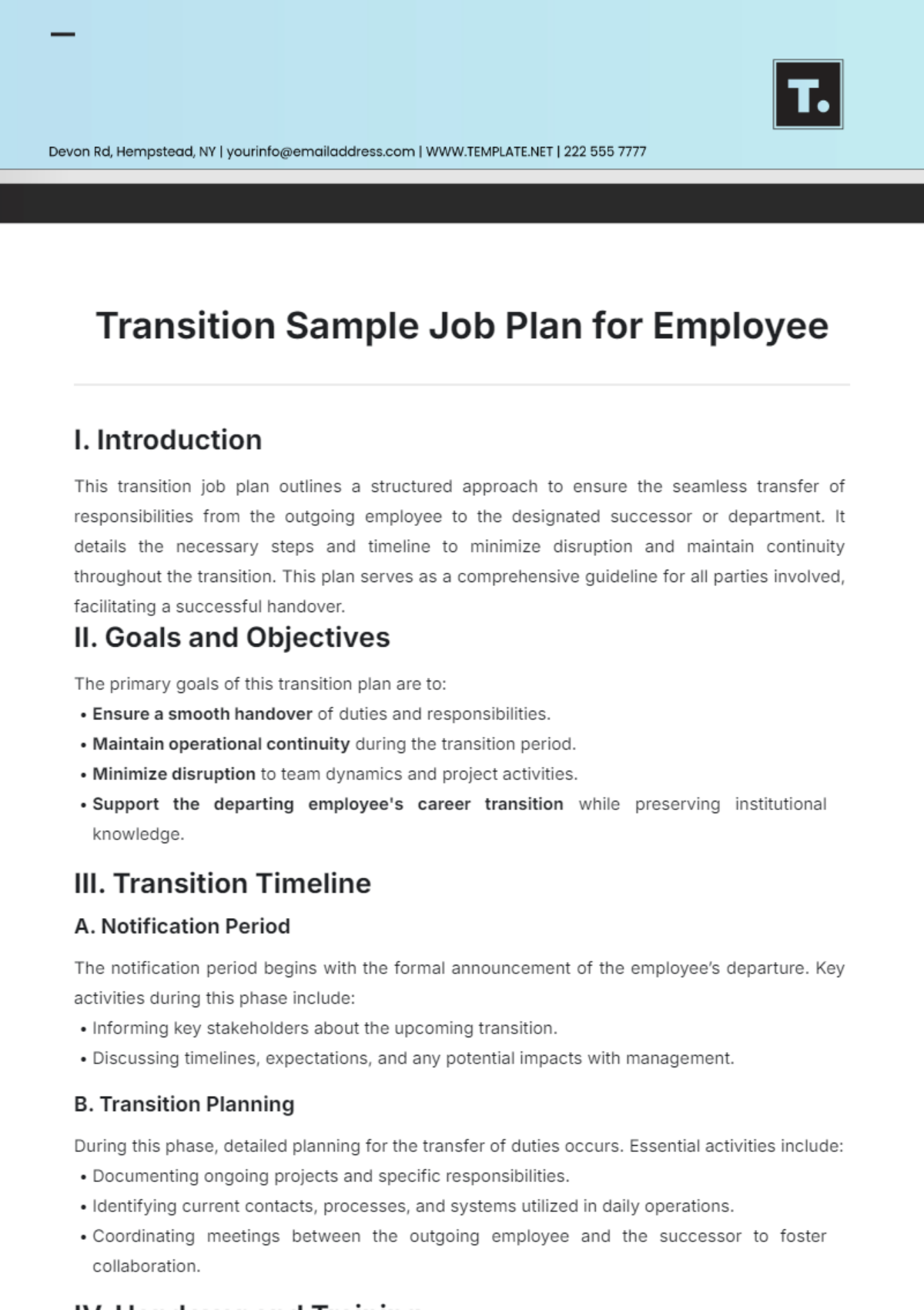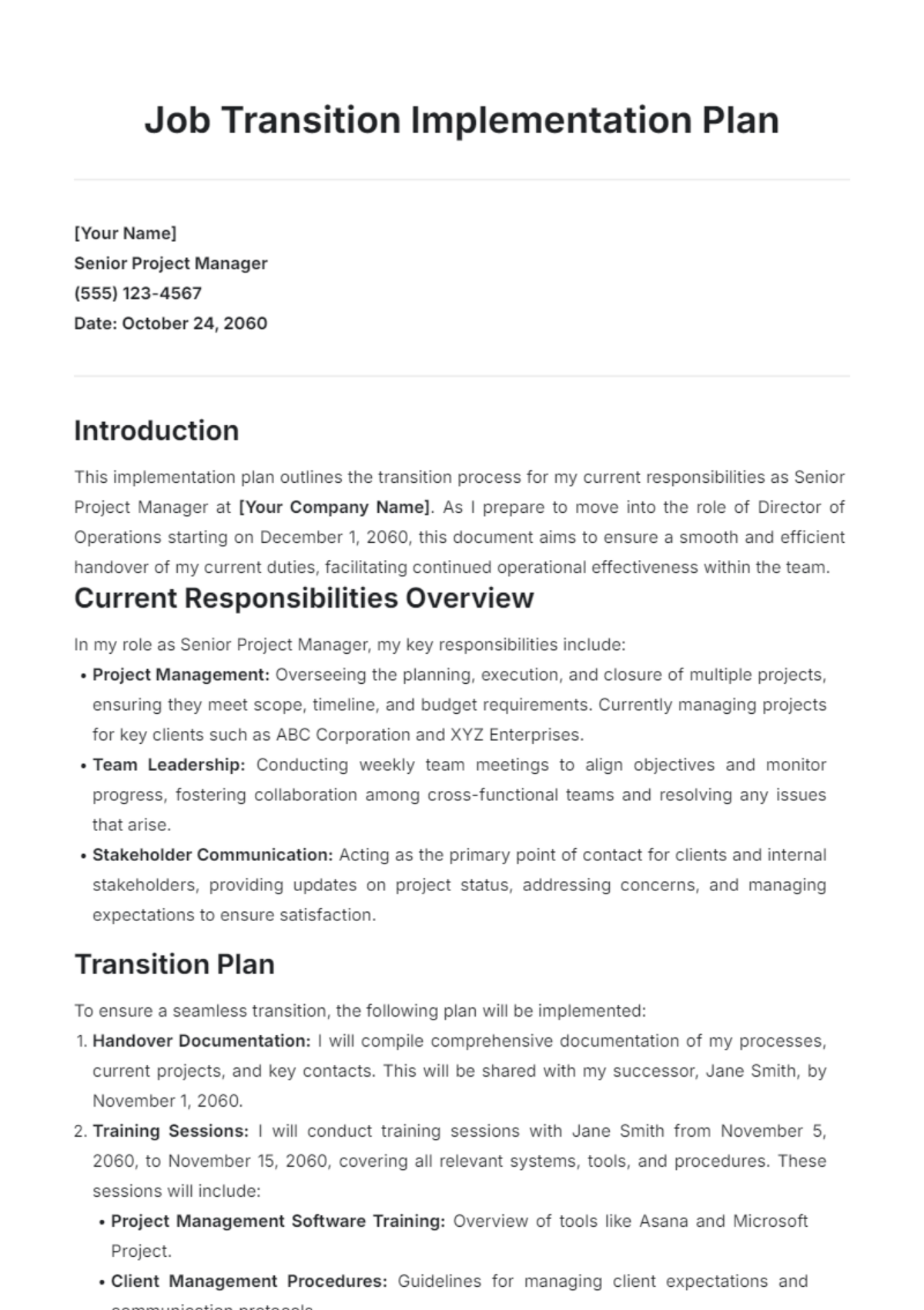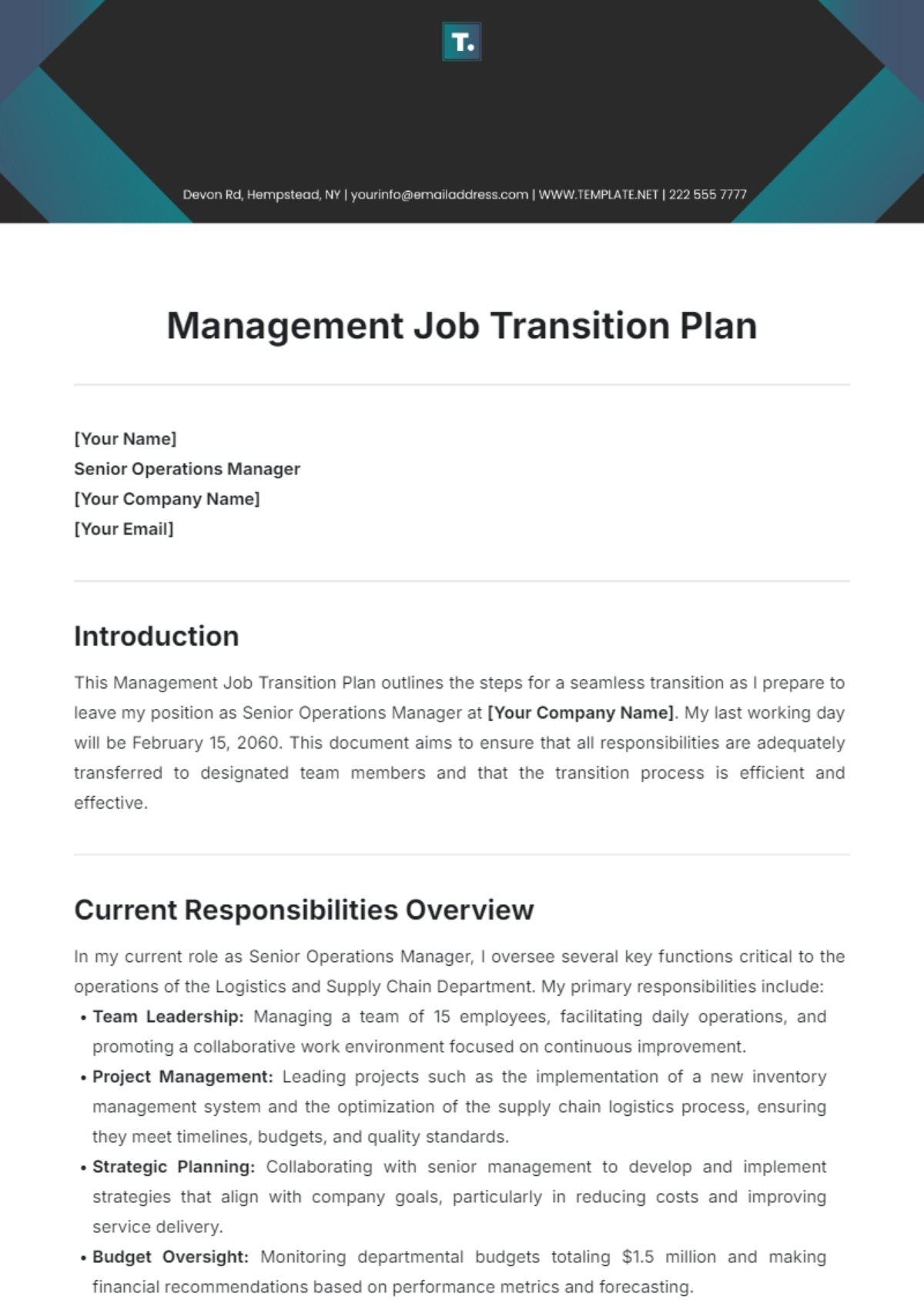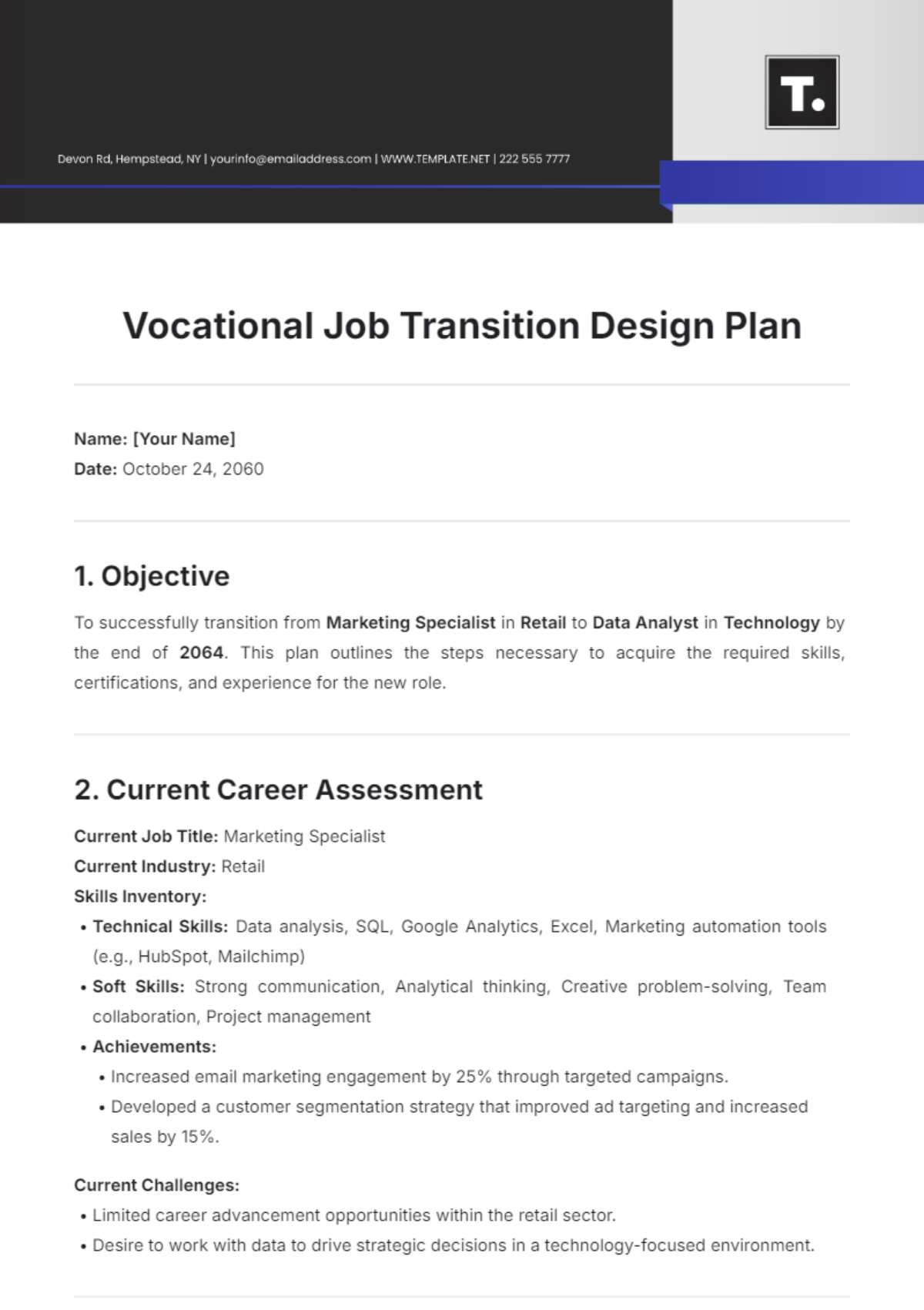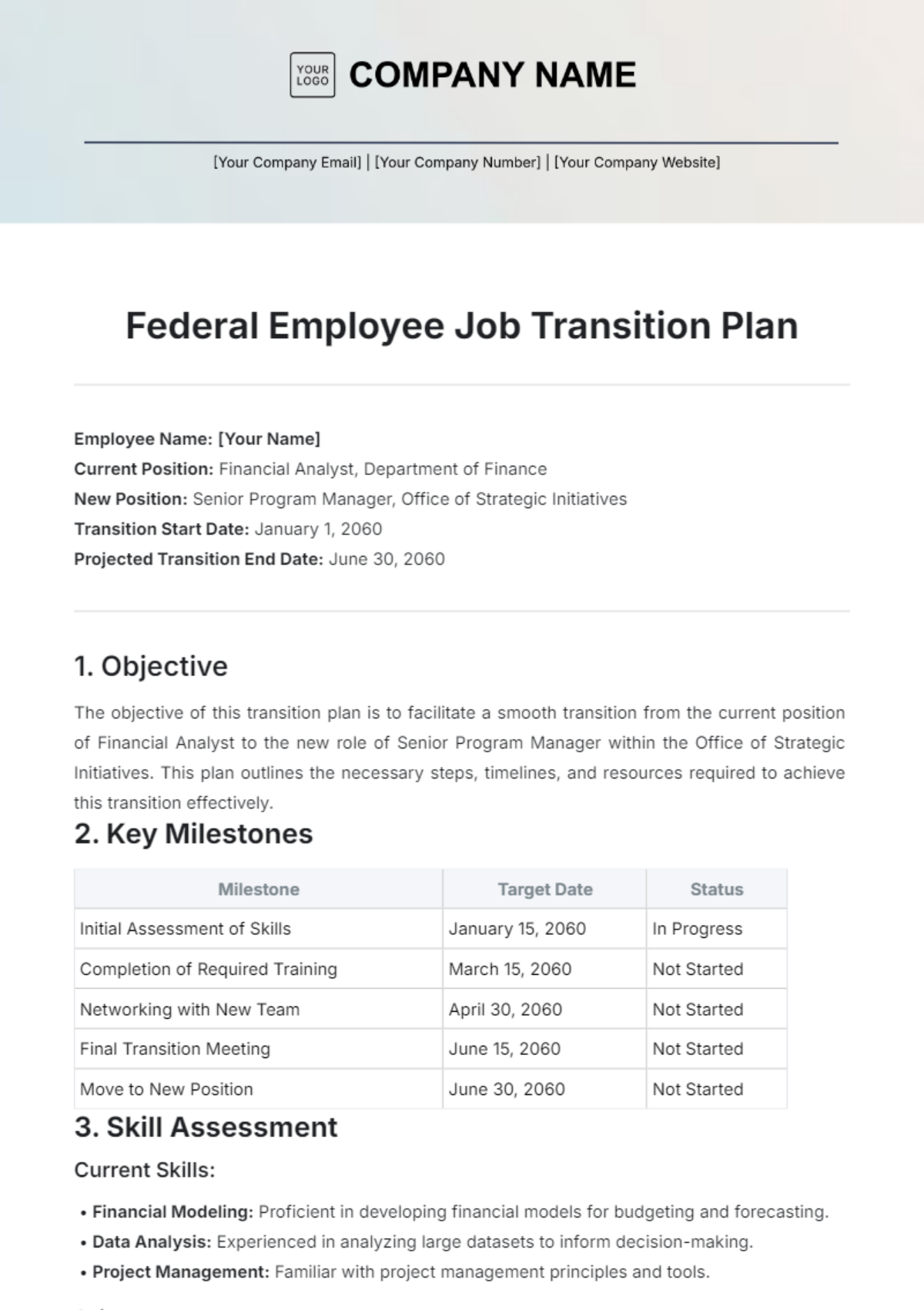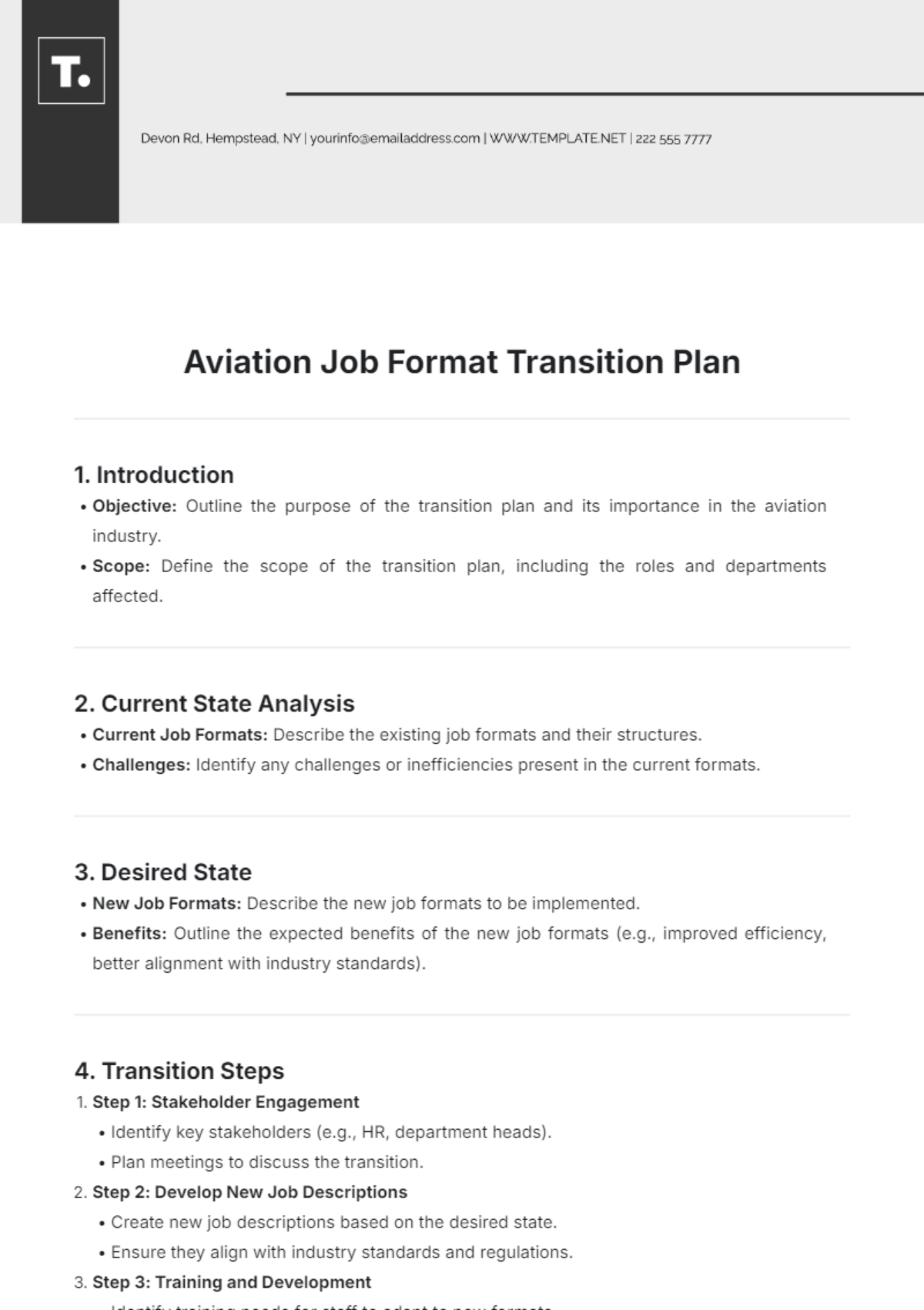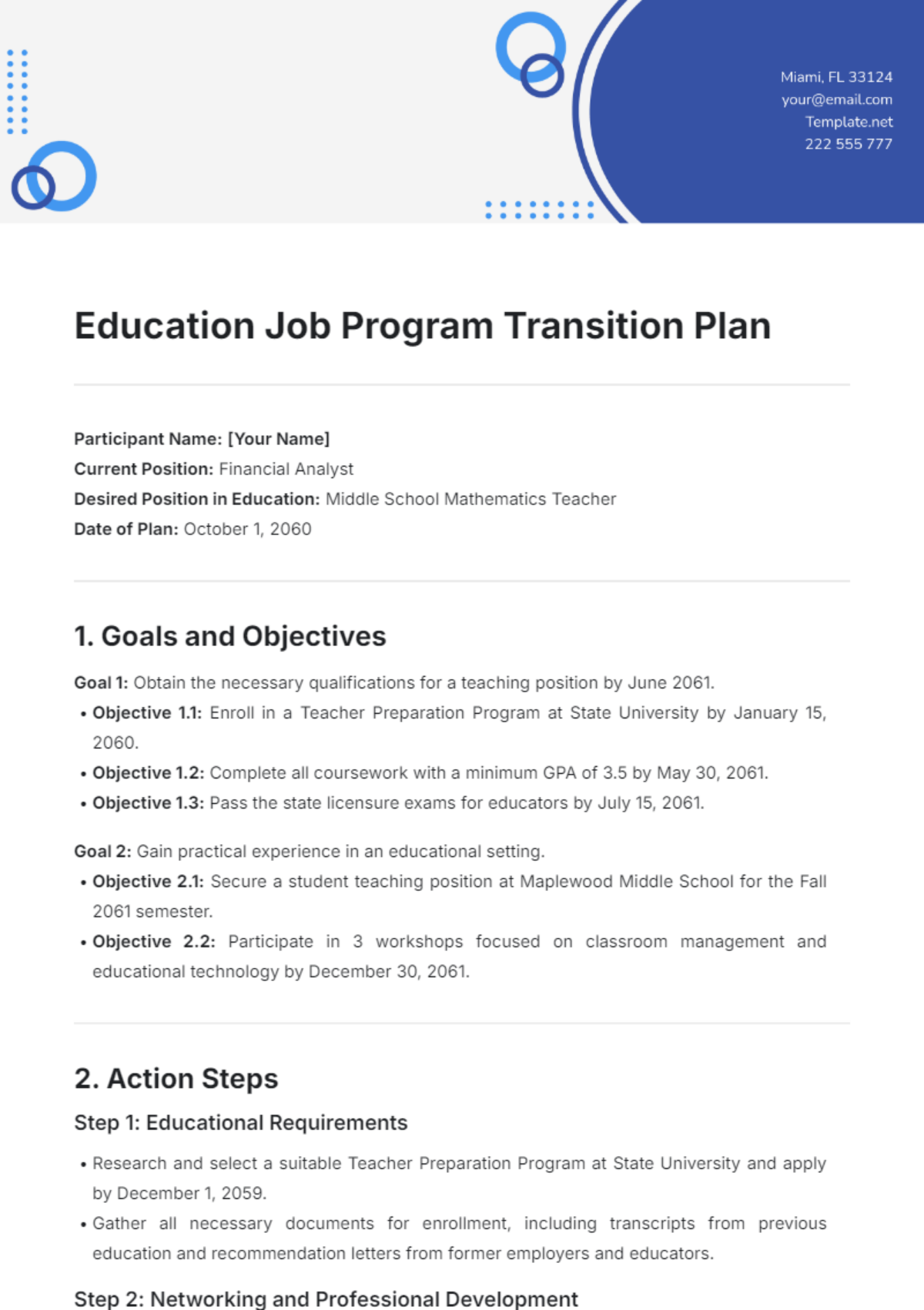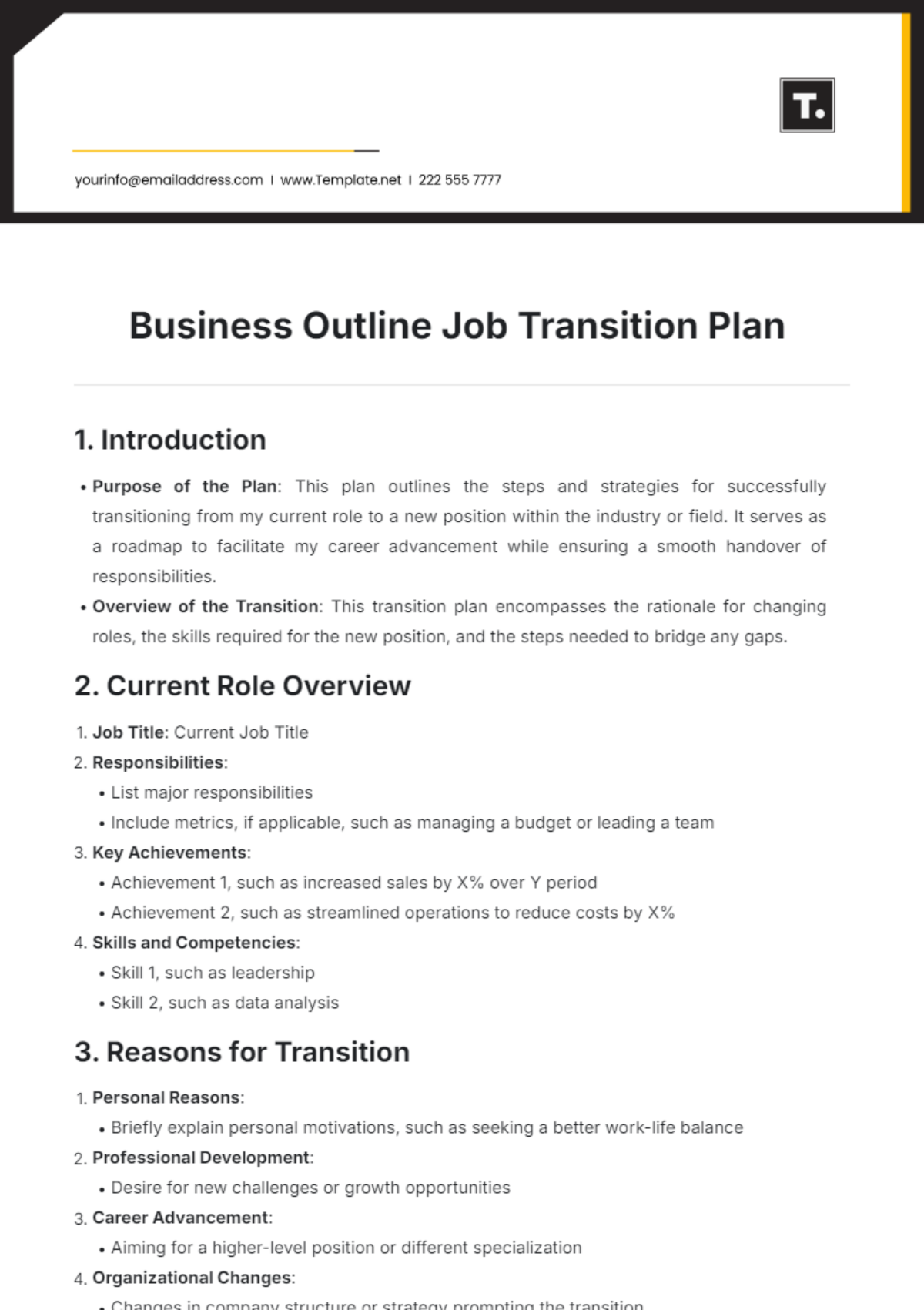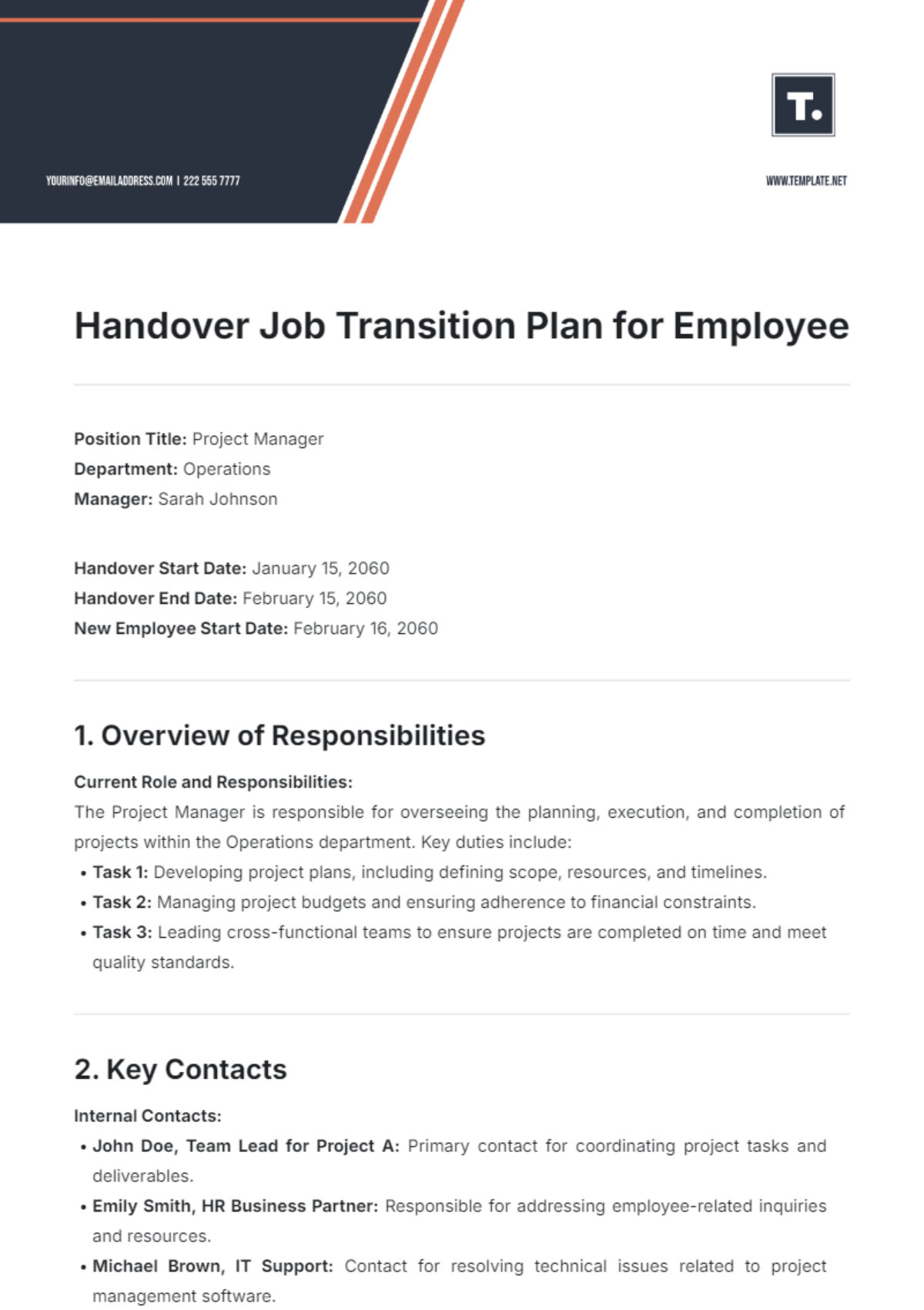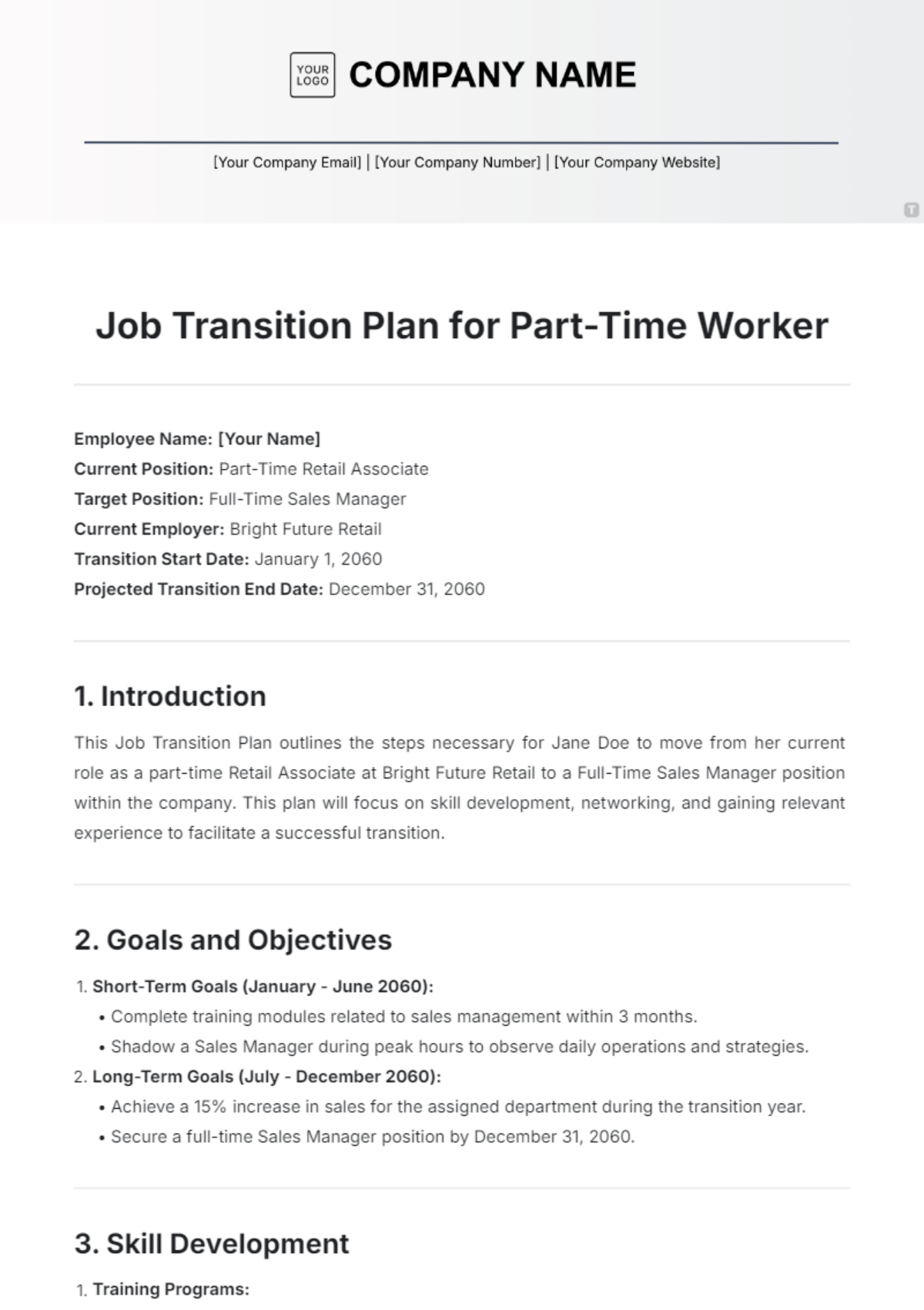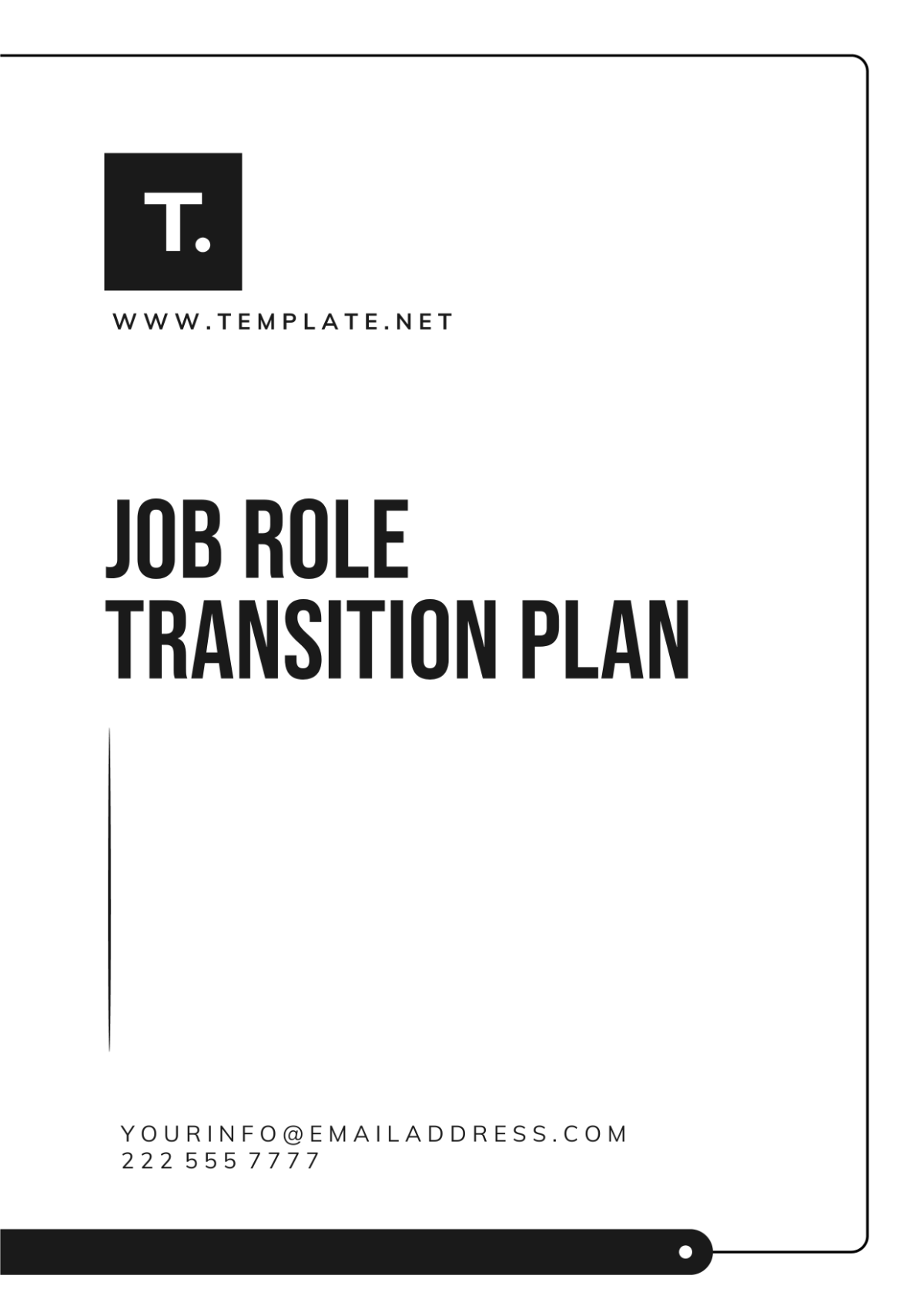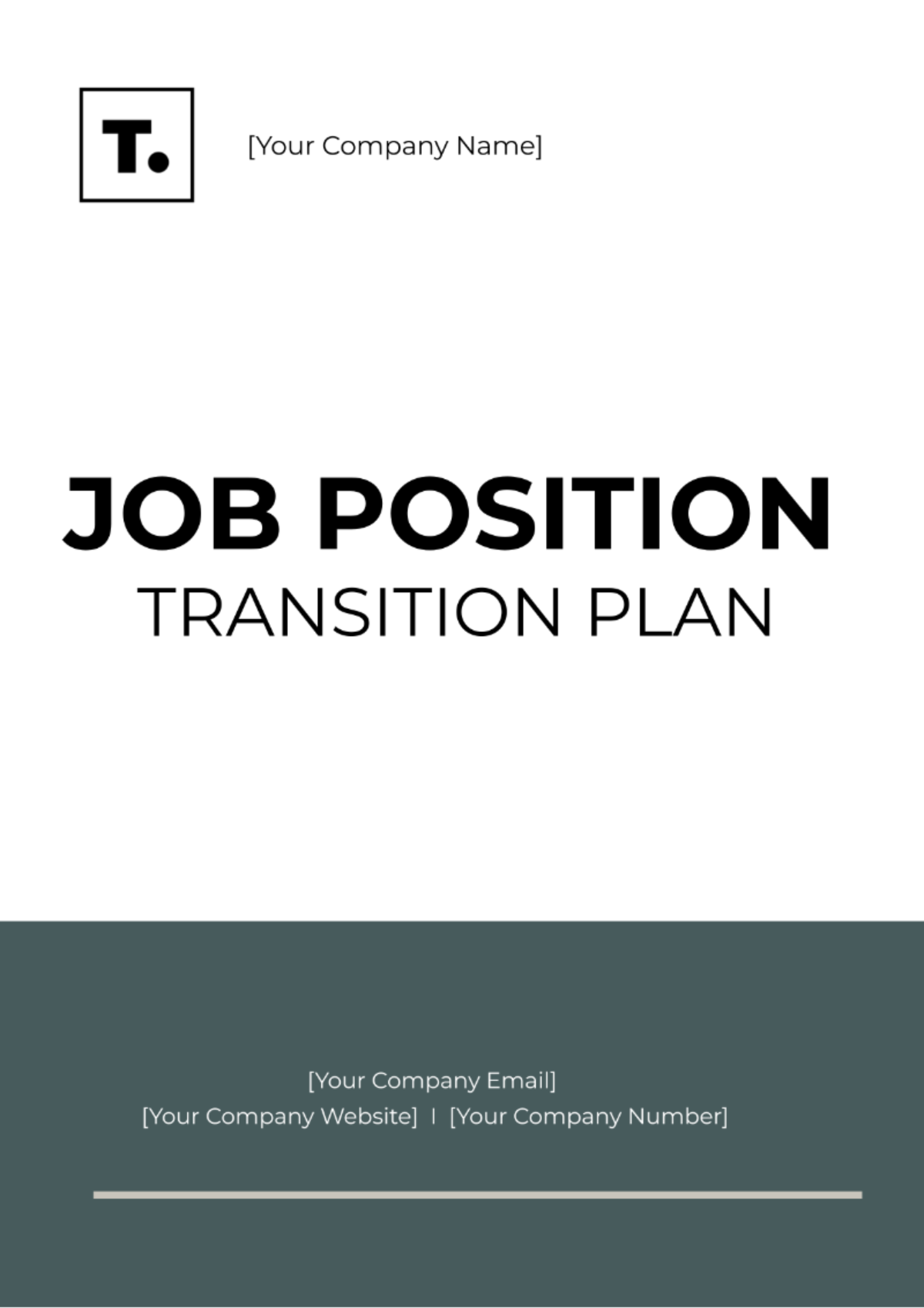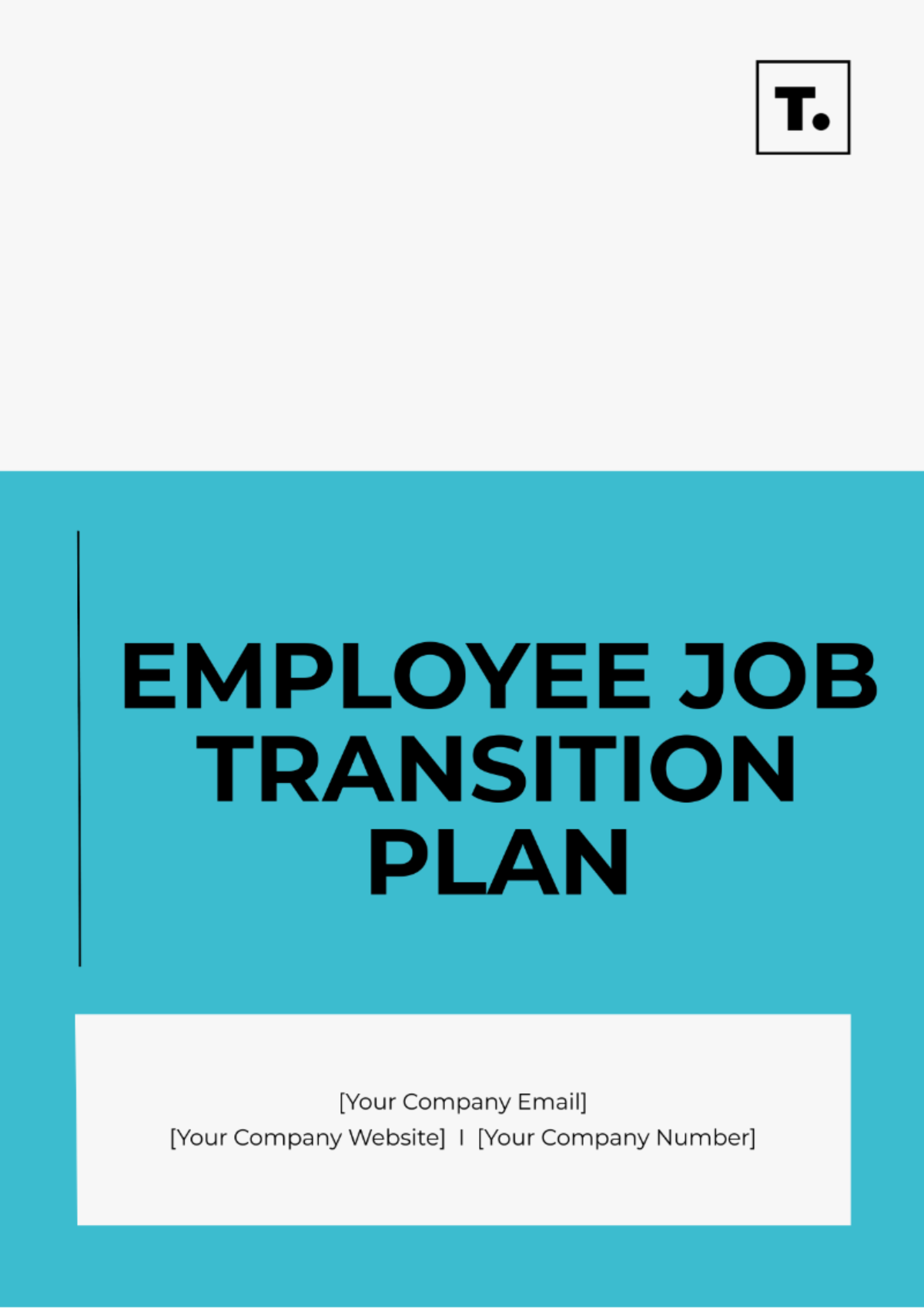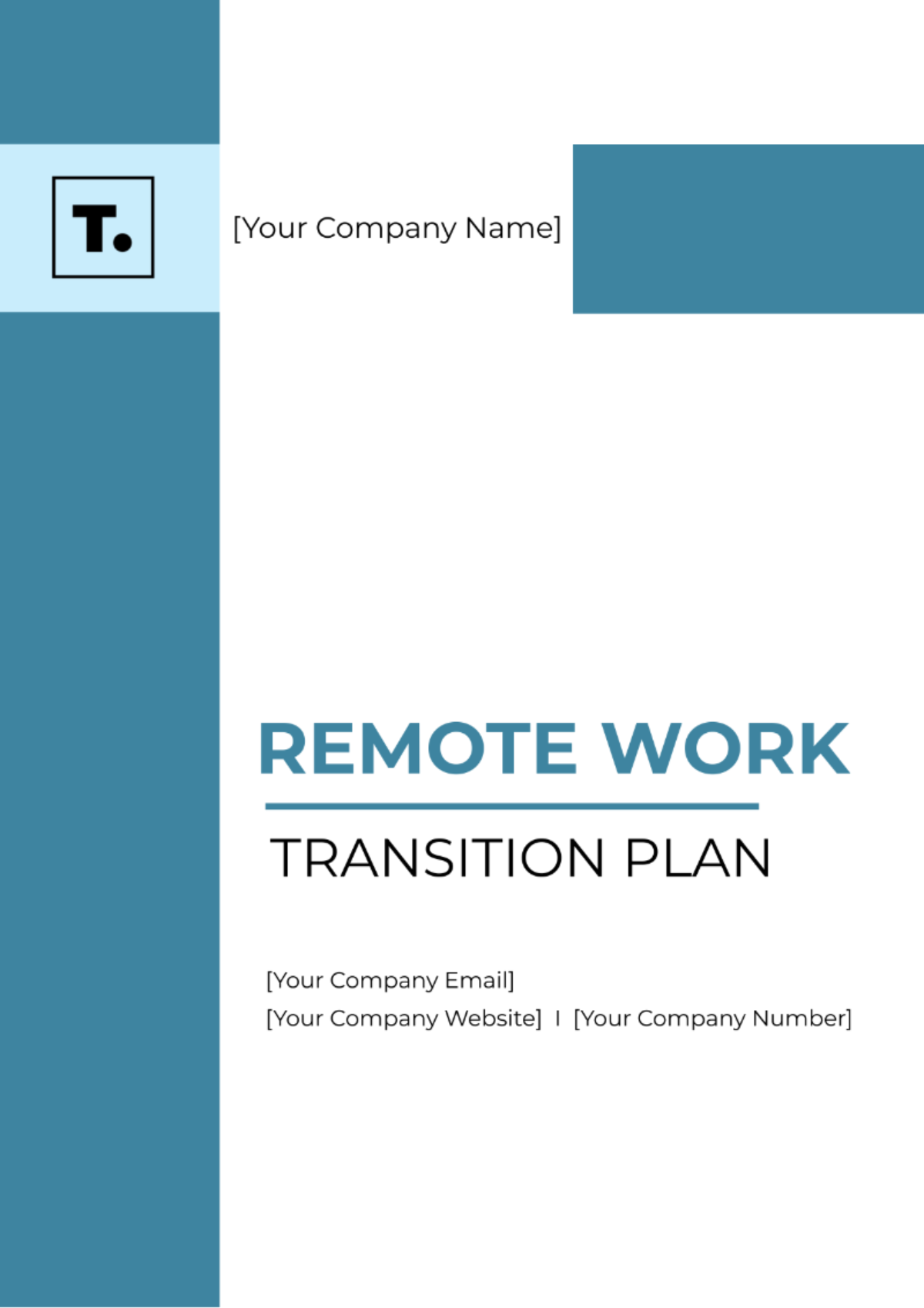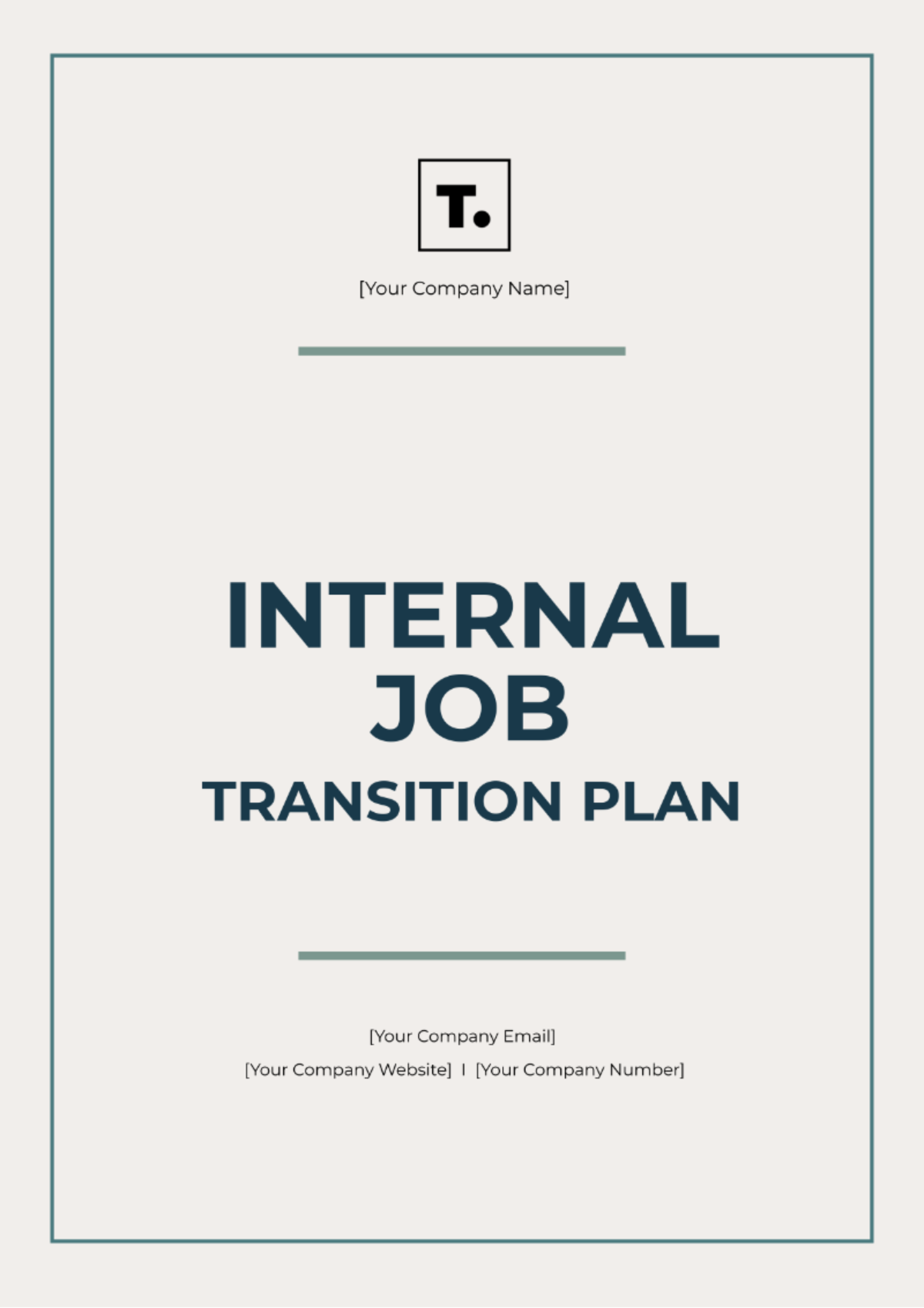Knowledge Transition for Job Plan
Prepared for: [Your Company Name]
Prepared by: [Your Name]
Date: October 24, 2060
1. Executive Summary
This Knowledge Transition Job Plan outlines the process and strategies for ensuring the seamless transfer of essential knowledge and skills among team members at [Your Company Name]. The objective is to facilitate continuous operations and maintain high-performance standards during transitions, such as personnel changes or departmental restructuring.
Key Objectives:
Preserve critical organizational knowledge.
Reduce operational disruptions during transitions.
Enhance employee engagement and development.
2. Background
In 2060, [Your Company Name] is poised to expand its operations in the renewable energy sector. As we anticipate significant personnel changes due to retirements and promotions, it is imperative to have a structured approach to knowledge transfer.
Current State:
Employees in critical roles such as Senior Project Managers and Lead Engineers are nearing retirement or transitioning to new positions.
Knowledge gaps are likely to emerge, impacting project timelines and service delivery.
3. Objectives
3.1 Primary Goals
Ensure all key processes are documented and accessible.
Train successors and new team members in essential skills and knowledge areas.
Foster a culture of knowledge sharing within the organization.
3.2 Specific Targets
Identify 100% of critical roles for knowledge transfer by January 31, 2060.
Achieve a 90% satisfaction rate in knowledge transfer sessions as measured by participant feedback by October 31, 2060.
4. Knowledge Inventory
4.1 Key Areas of Knowledge
Technical Skills: Proficiency in renewable energy systems, project management software (e.g., MS Project, Primavera), and data analysis tools (e.g., MATLAB, Python).
Process Knowledge: Key project management workflows, compliance, and regulatory procedures, and client engagement protocols.
Cultural Knowledge: [Your Company Name] values, mission, and best practices for teamwork and innovation.
4.2 Documentation
Develop a centralized knowledge repository by March 15, 2060, that includes:
Standard operating procedures (SOPs).
Best practices and lessons learned.
Training materials and resources.
5. Transition Strategy
5.1 Mentorship Program
Pair outgoing employees with successors for a minimum of three months to facilitate on-the-job training and guidance.
Implement regular check-ins and progress assessments.
5.2 Workshops and Training Sessions
Schedule training workshops focused on critical knowledge areas, starting from July 1, 2060, through September 30, 2060.
Create interactive training modules covering essential tools and processes.
5.3 Knowledge Transfer Tools
Utilize tools such as Learning Management Systems (LMS) and collaboration software (e.g., Slack, Microsoft Teams) to enhance accessibility and retention of knowledge.
Establish a forum for ongoing discussions and Q&A sessions post-transition.
6. Timeline
Activity | Start Date | End Date | Responsible Party |
|---|---|---|---|
Identify critical roles | January 1, 2060 | January 31, 2060 | Human Resources Team |
Develop knowledge repository | February 1, 2060 | March 15, 2060 | Knowledge Management Team |
Implement mentorship program | March 16, 2060 | June 30, 2060 | Operations Manager |
Conduct training sessions | July 1, 2060 | September 30, 2060 | Training Coordinator |
Gather feedback and assess success | October 1, 2060 | October 31, 2060 | HR Analytics Team |
7. Evaluation and Feedback
7.1 Assessment Metrics
Evaluate the effectiveness of knowledge transfer through surveys and performance metrics.
Use feedback to continuously improve training methods and documentation.
7.2 Follow-Up
Schedule quarterly reviews to ensure knowledge retention and identify any emerging gaps.
Adjust strategies as needed based on team feedback and organizational changes.
8. Conclusion
The Knowledge Transition Job Plan for [Your Company Name] is essential for maintaining our competitive edge and operational excellence in the evolving landscape of renewable energy. By implementing a structured approach to knowledge transfer, we aim to empower our workforce and secure the future success of our organization.
Prepared by:
 [Your Name]
[Your Name]
Knowledge Manager
